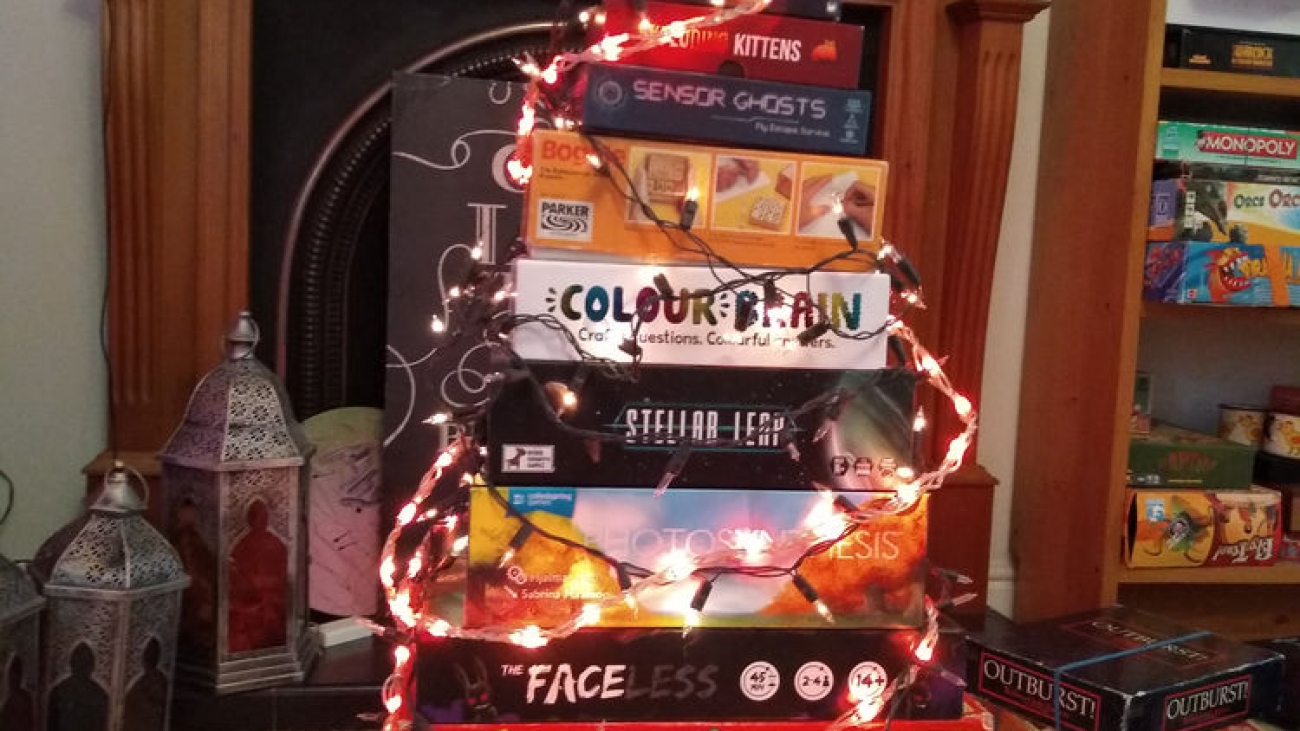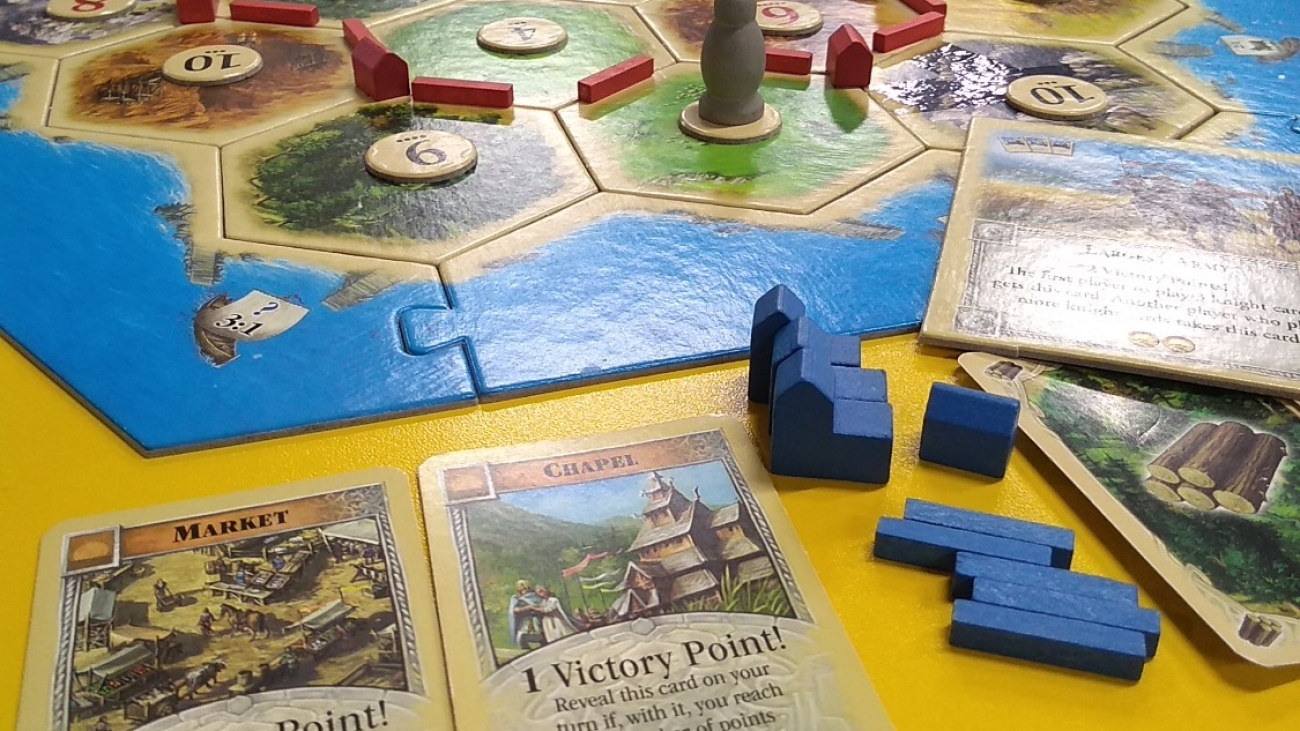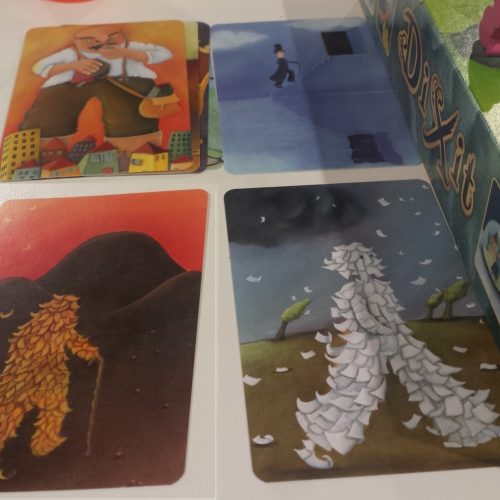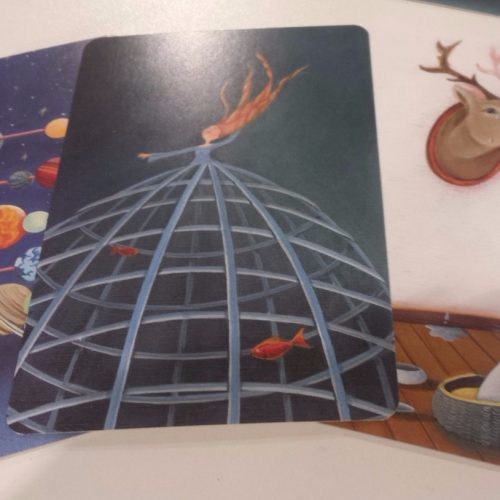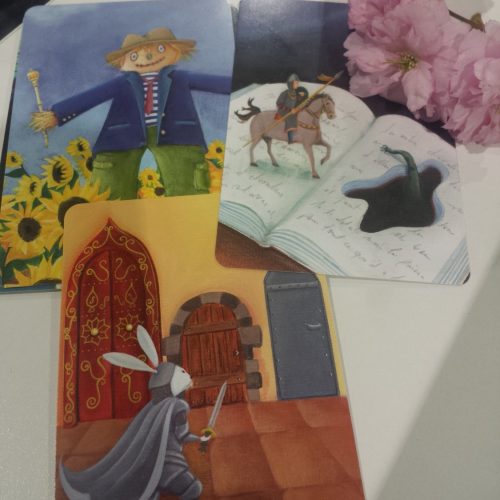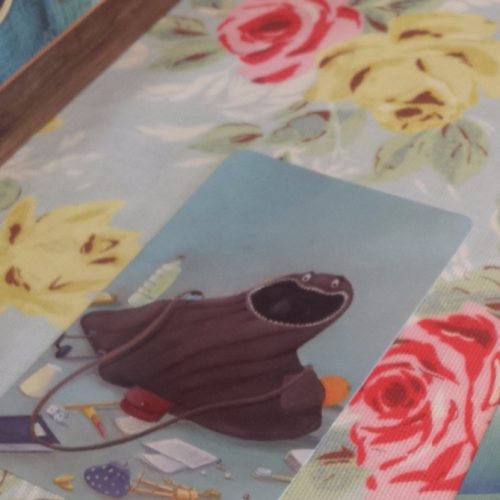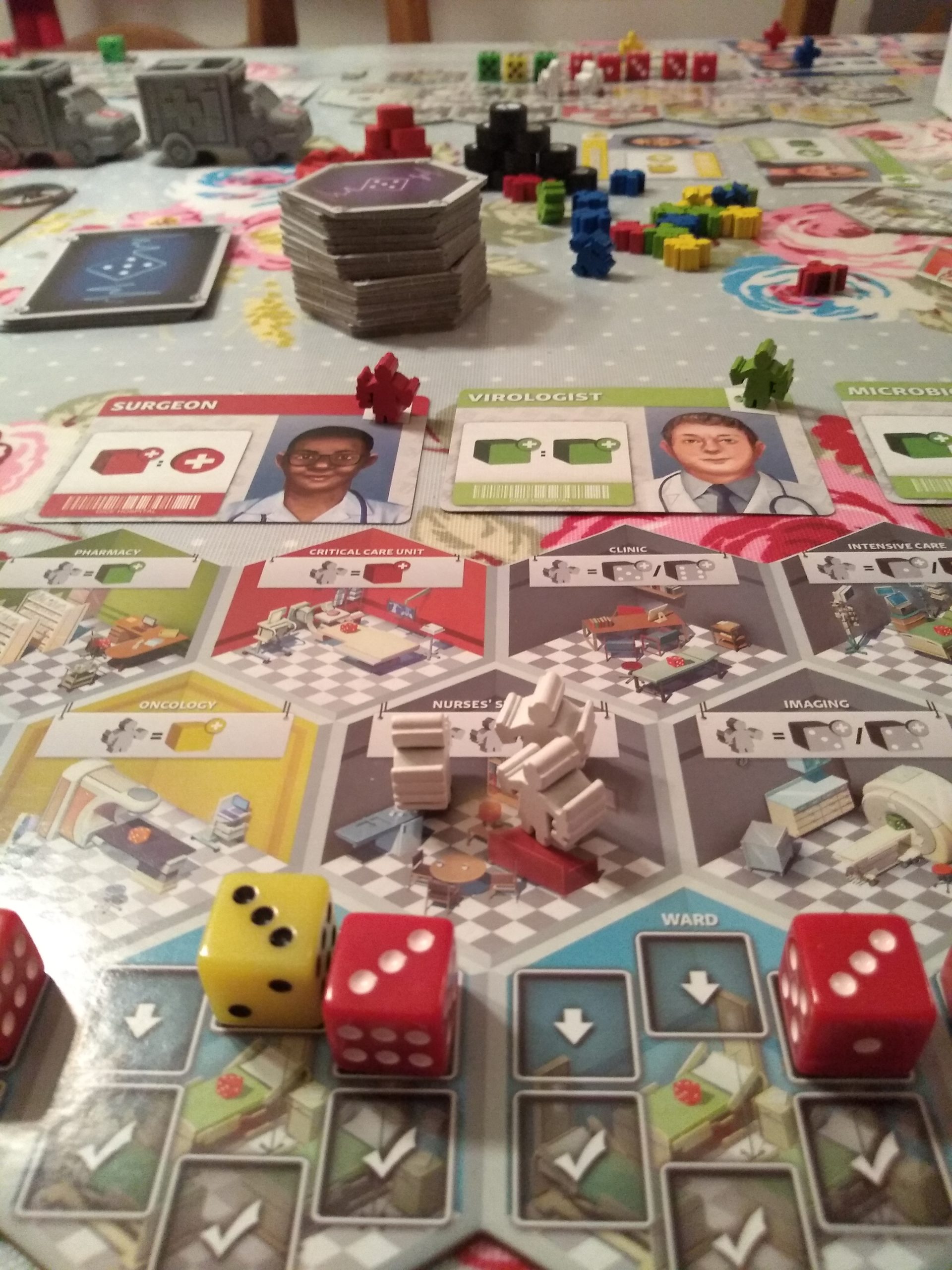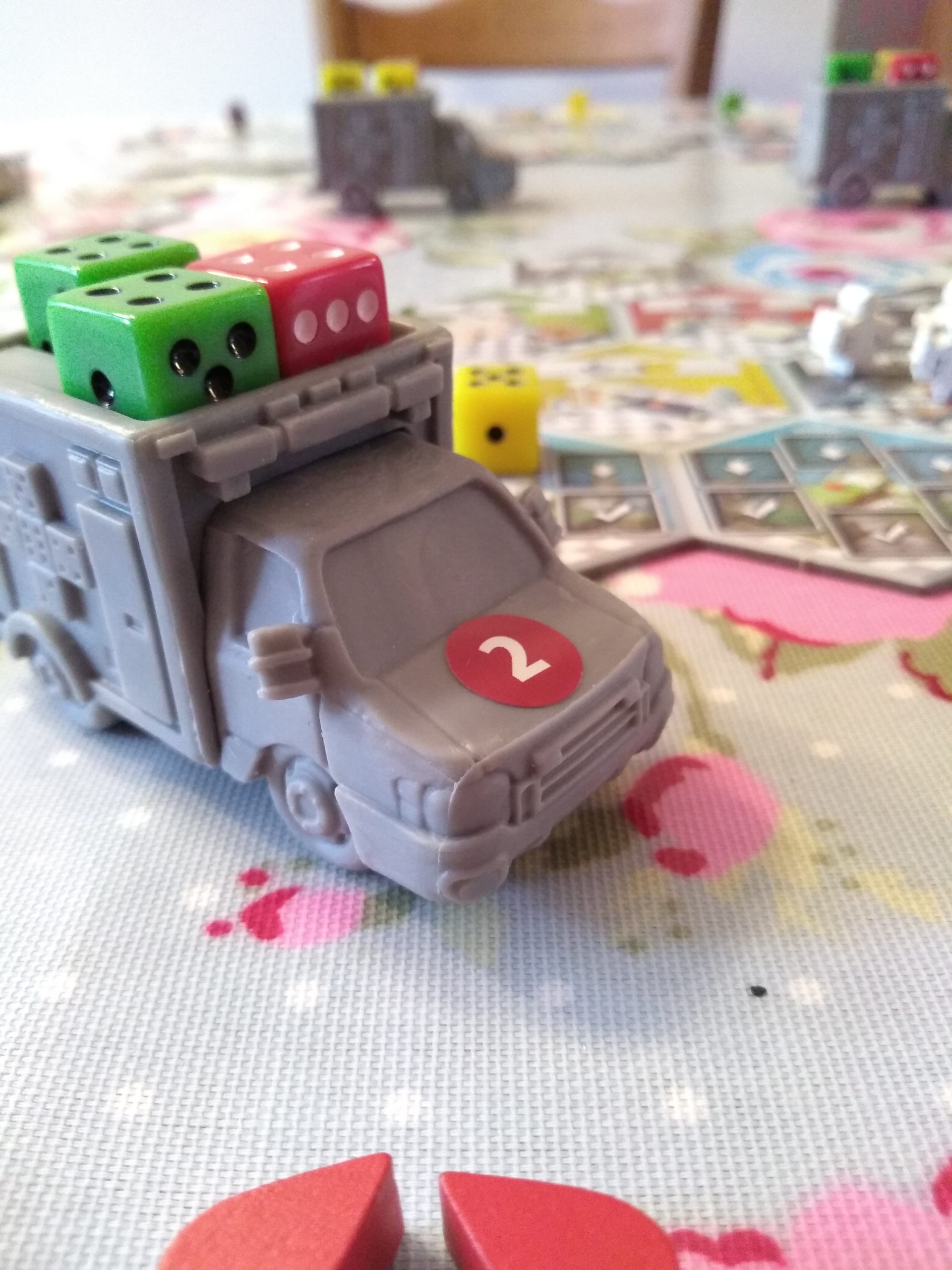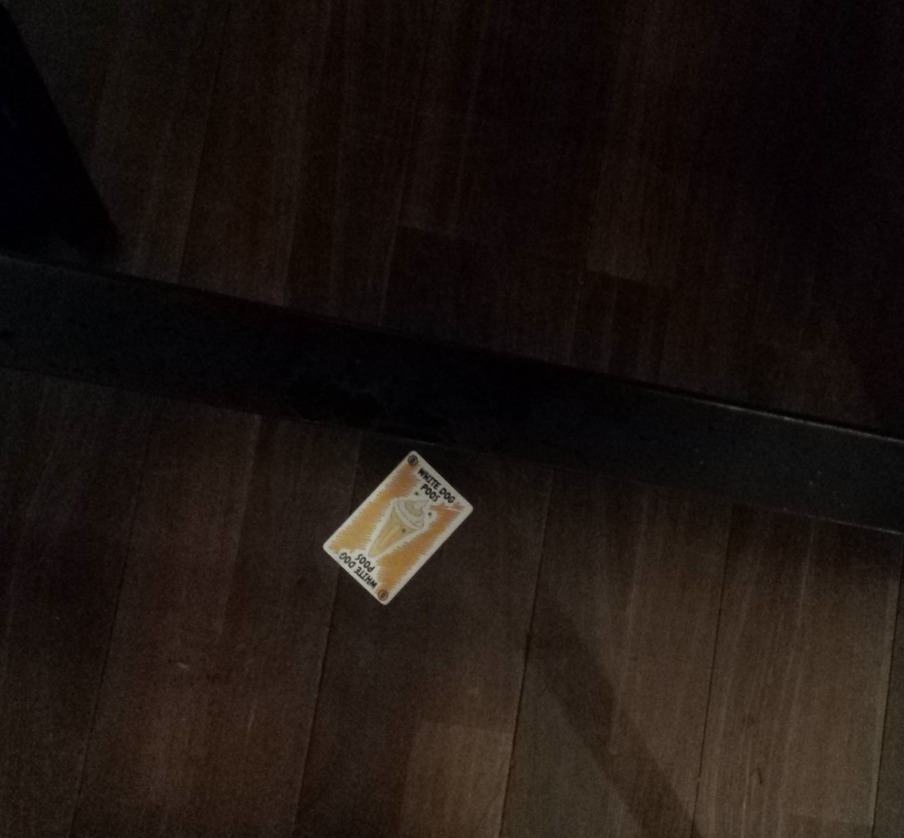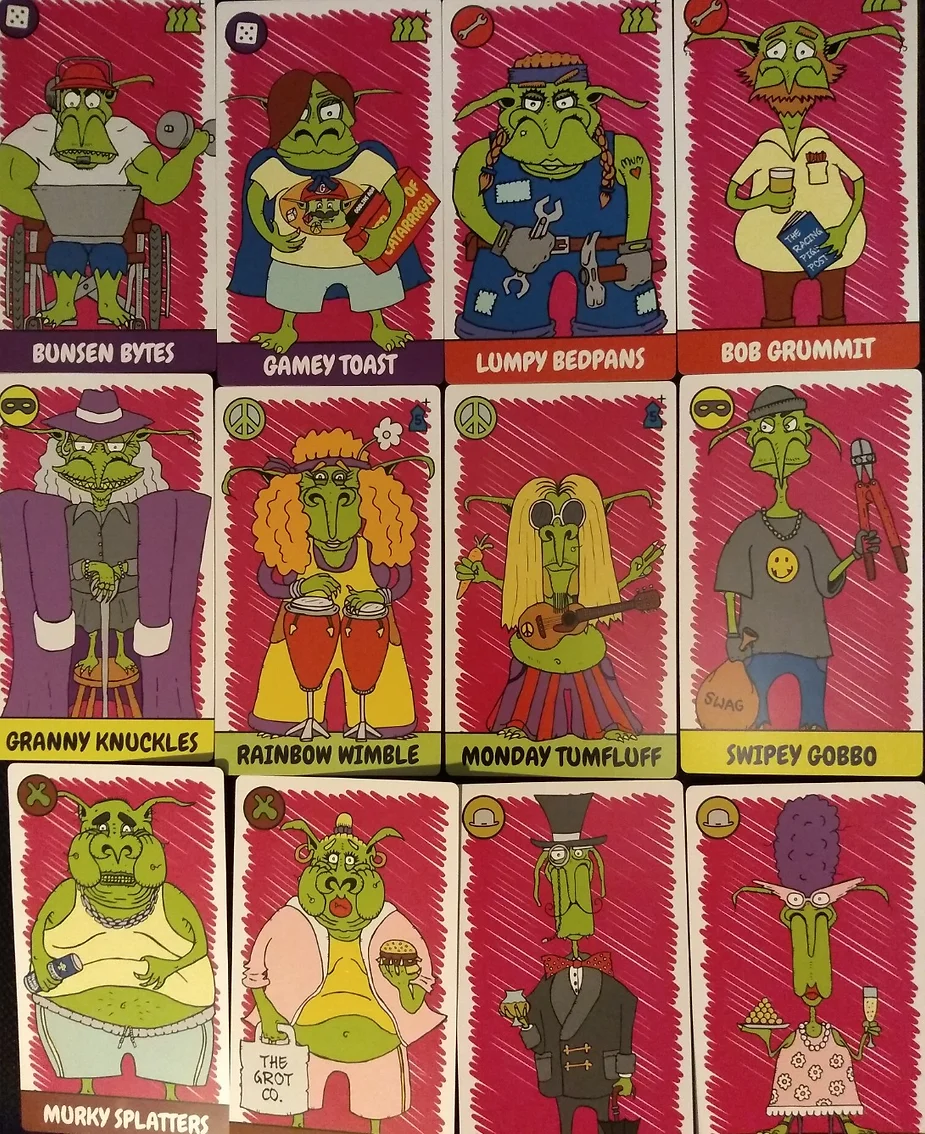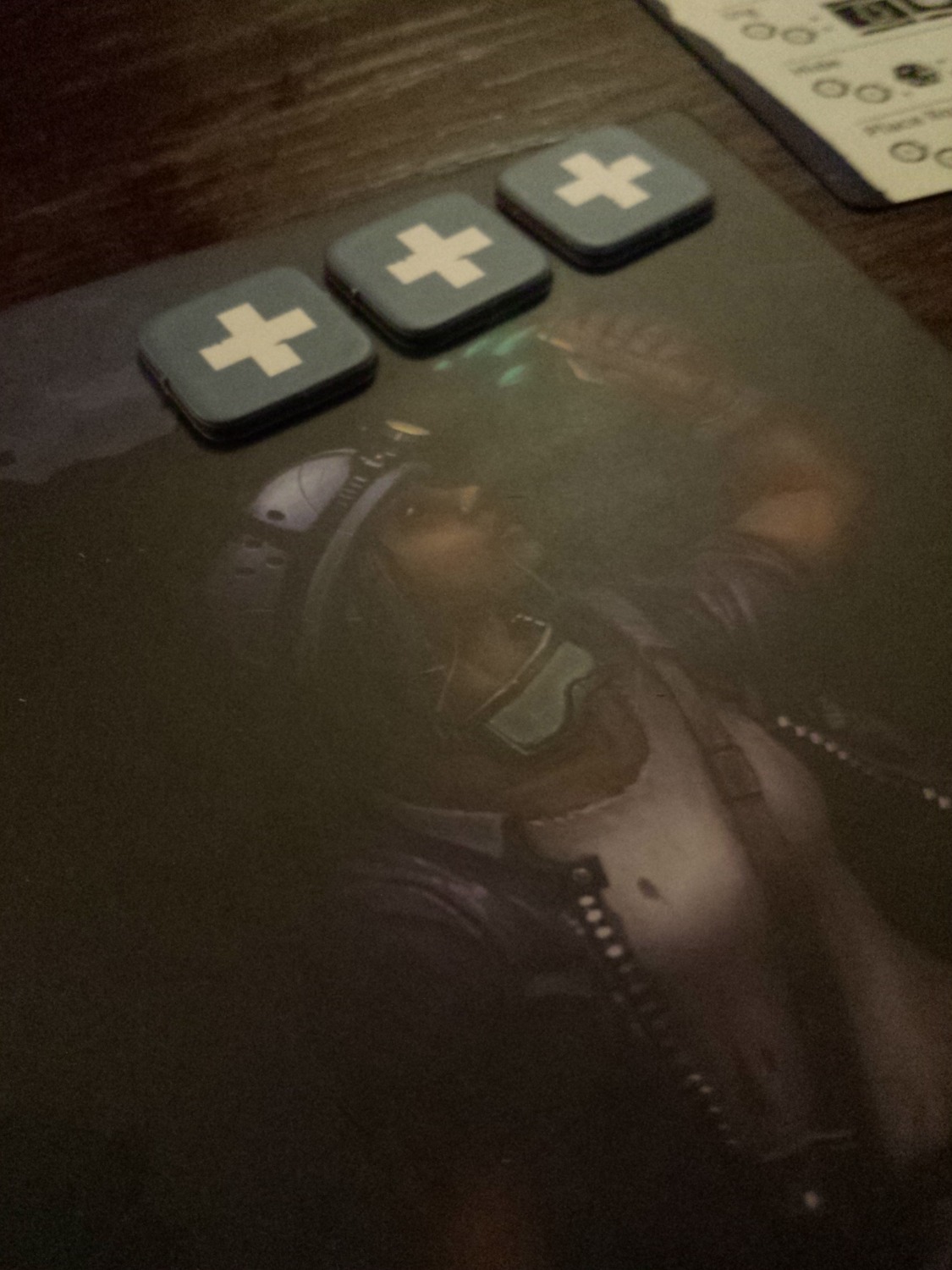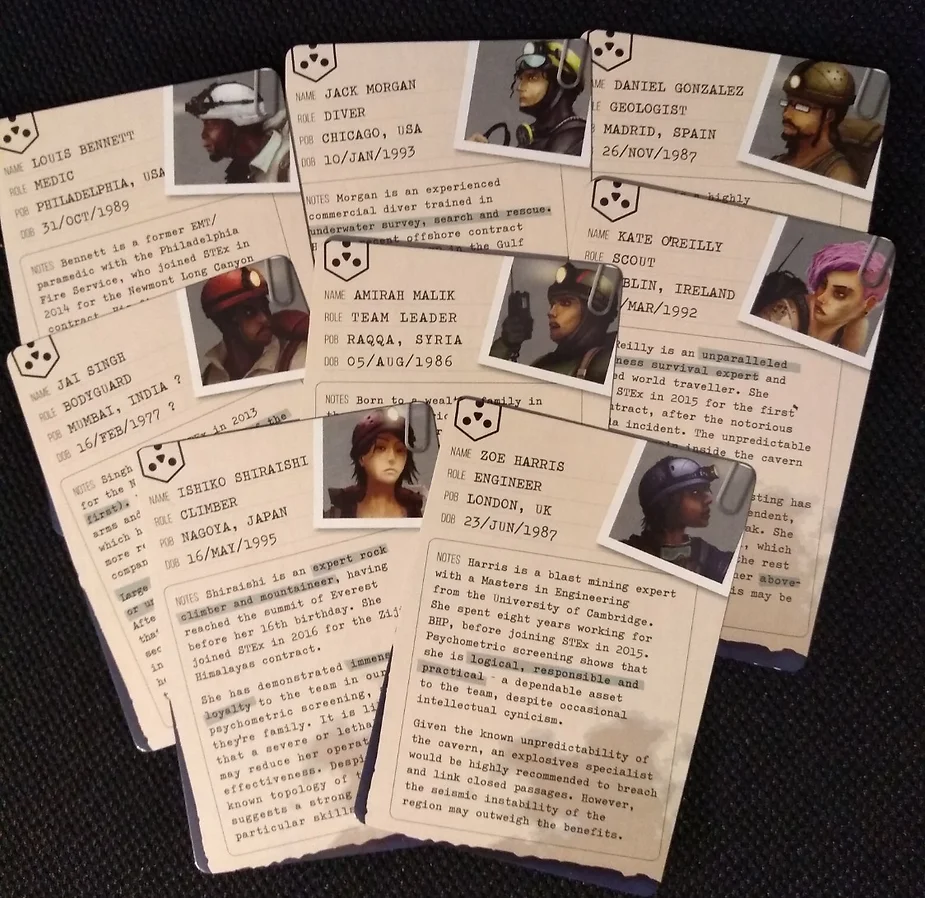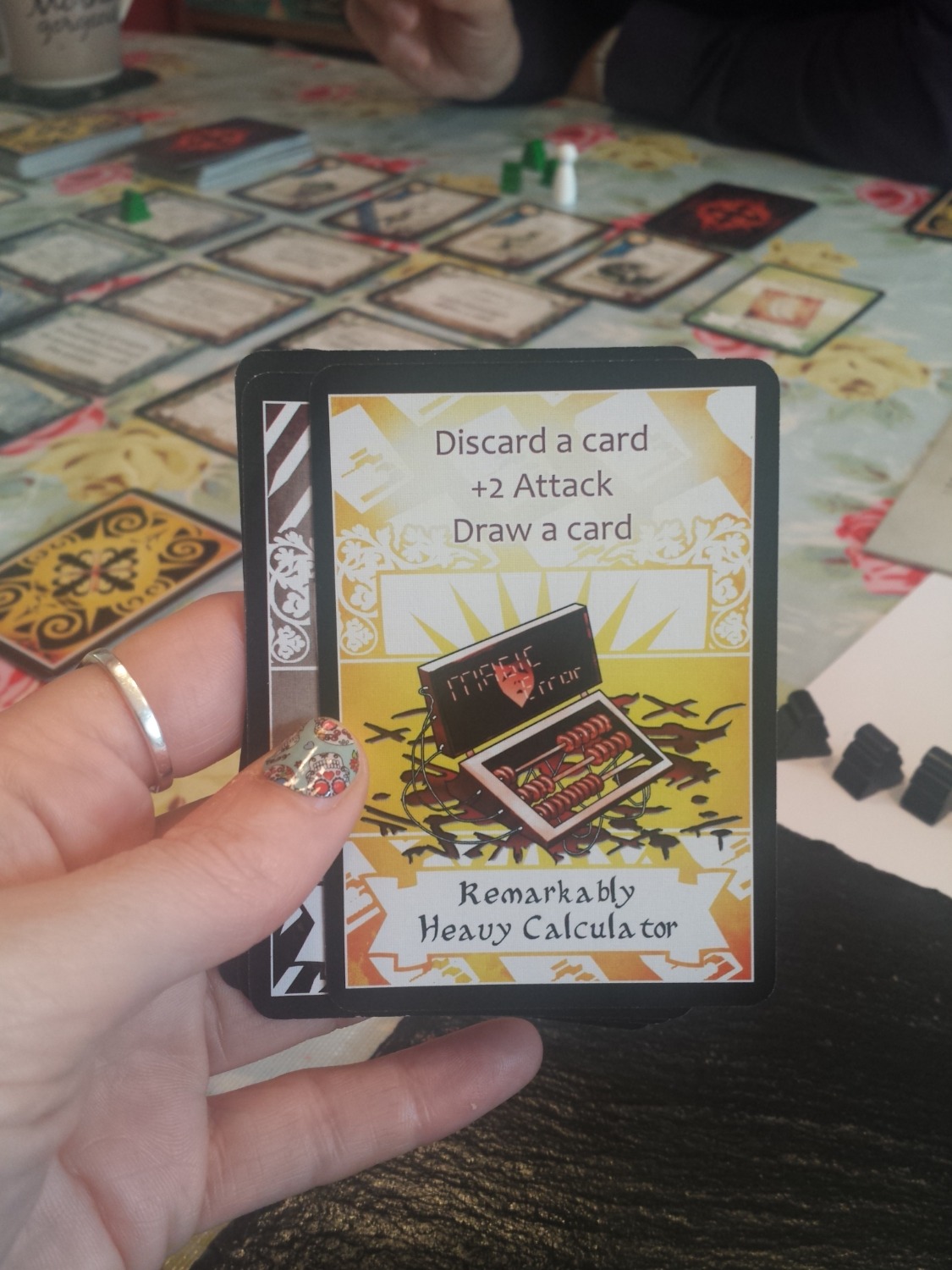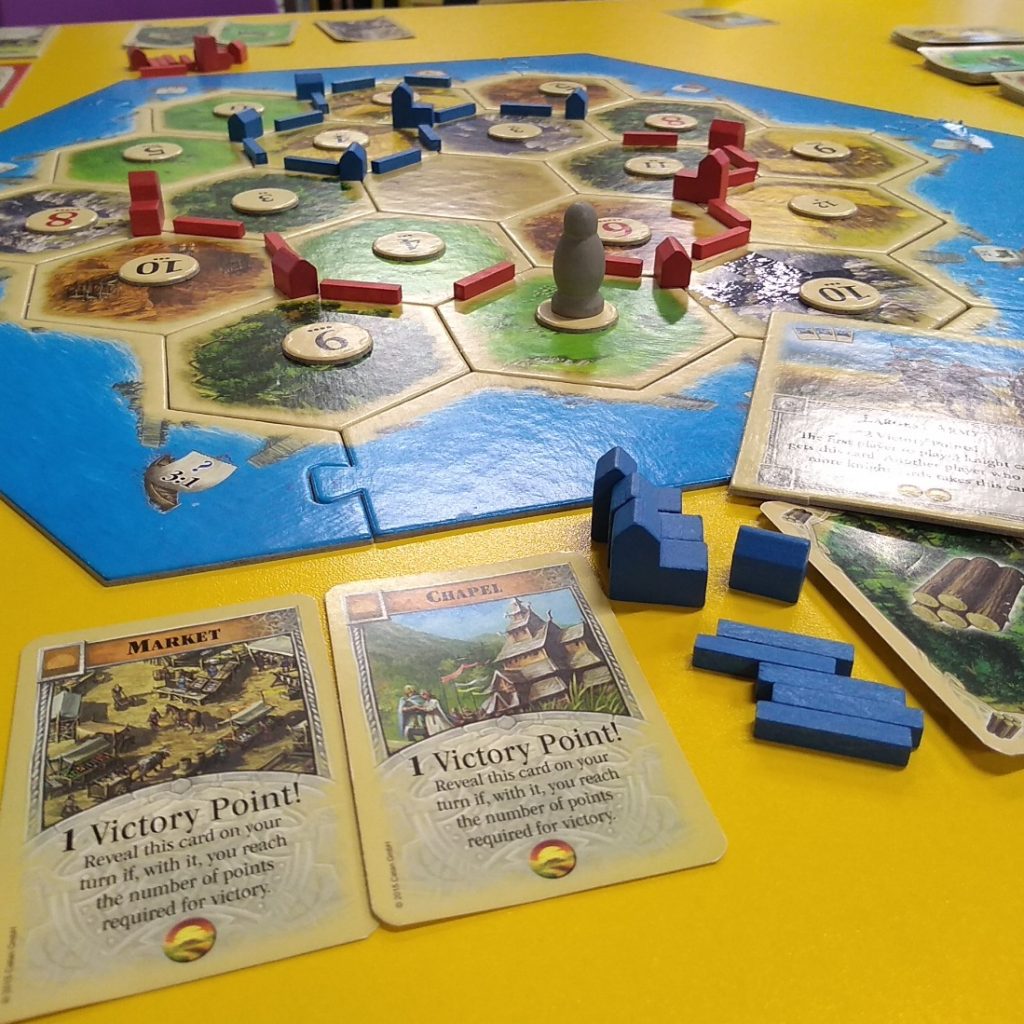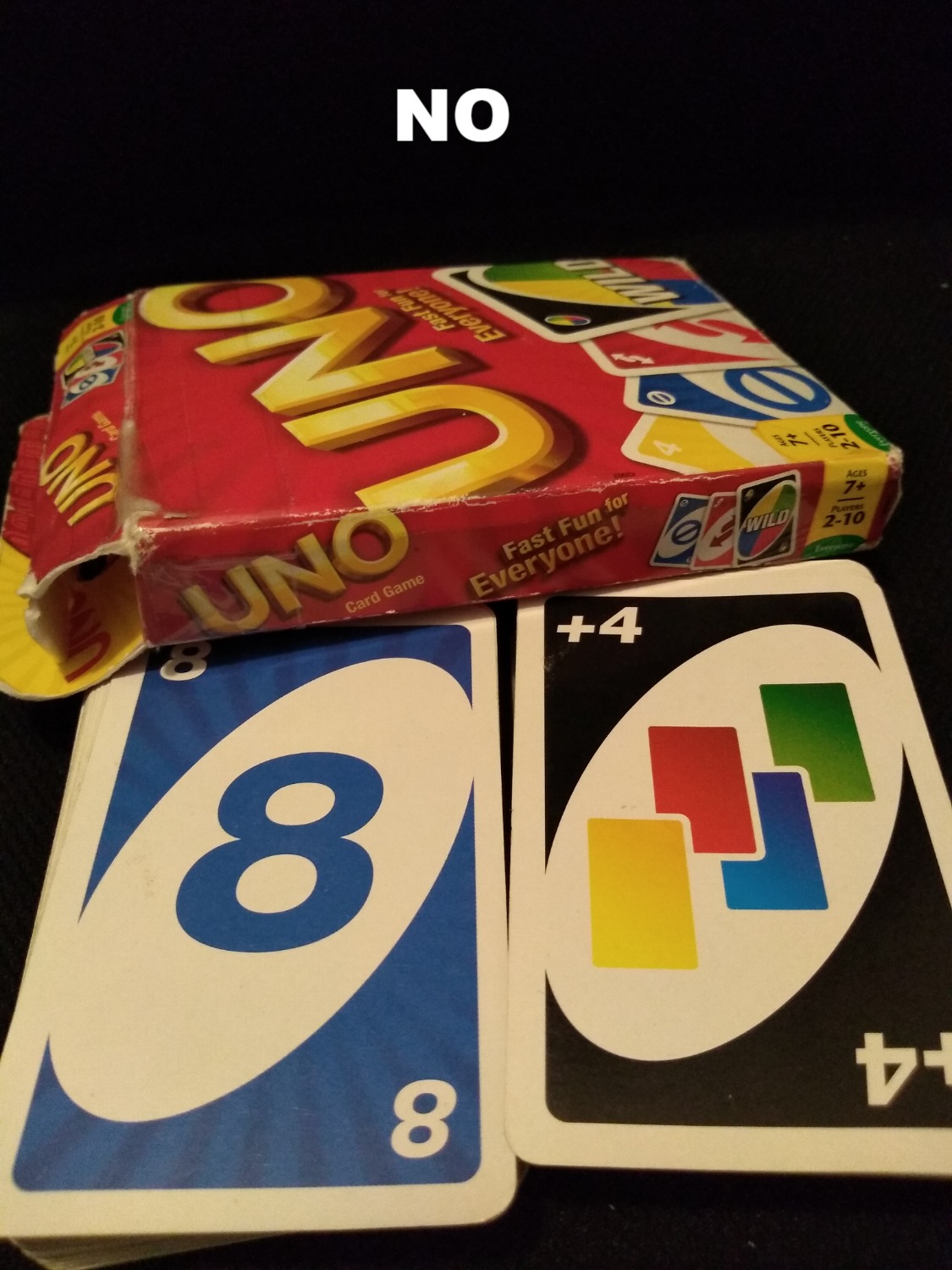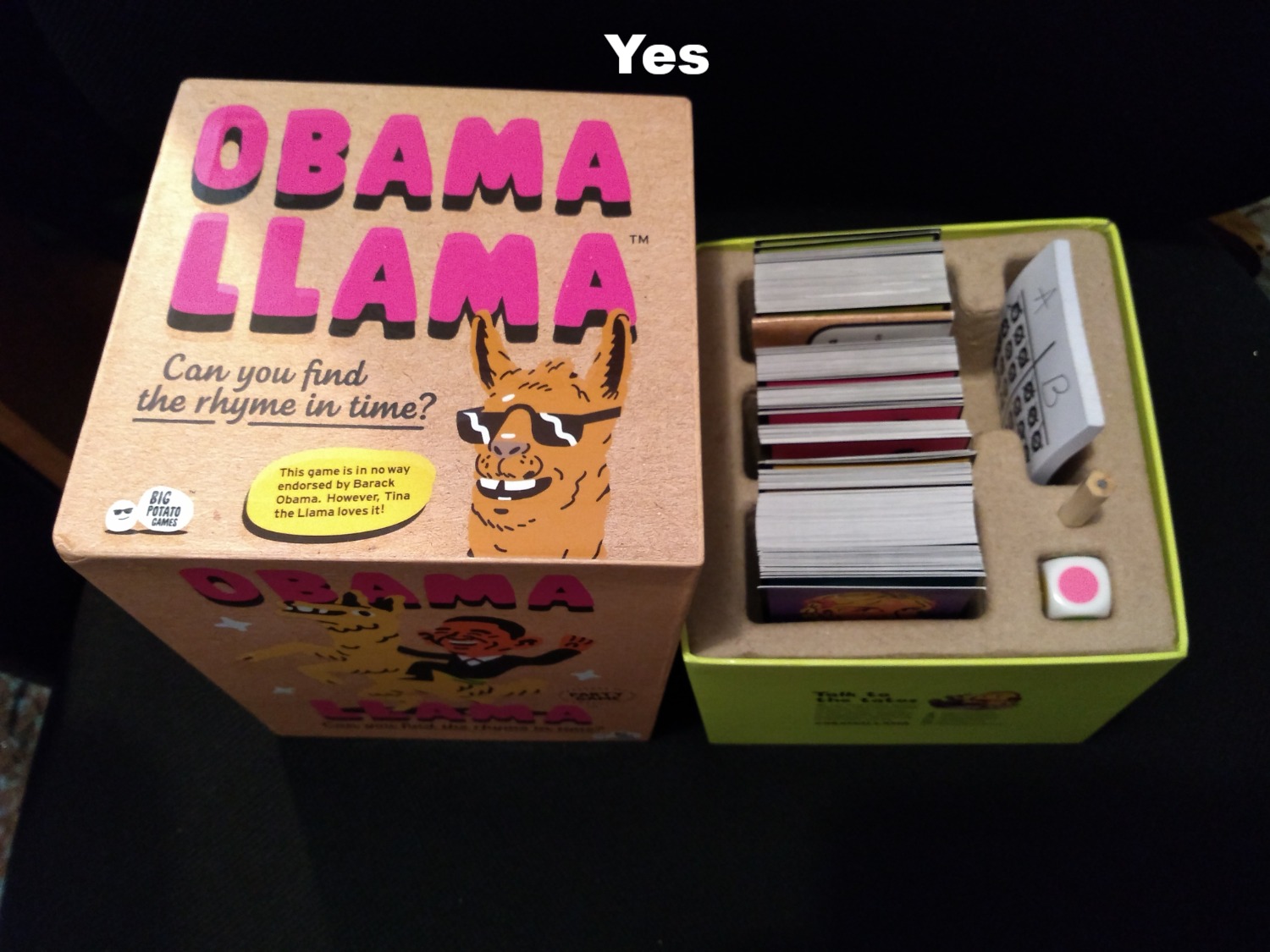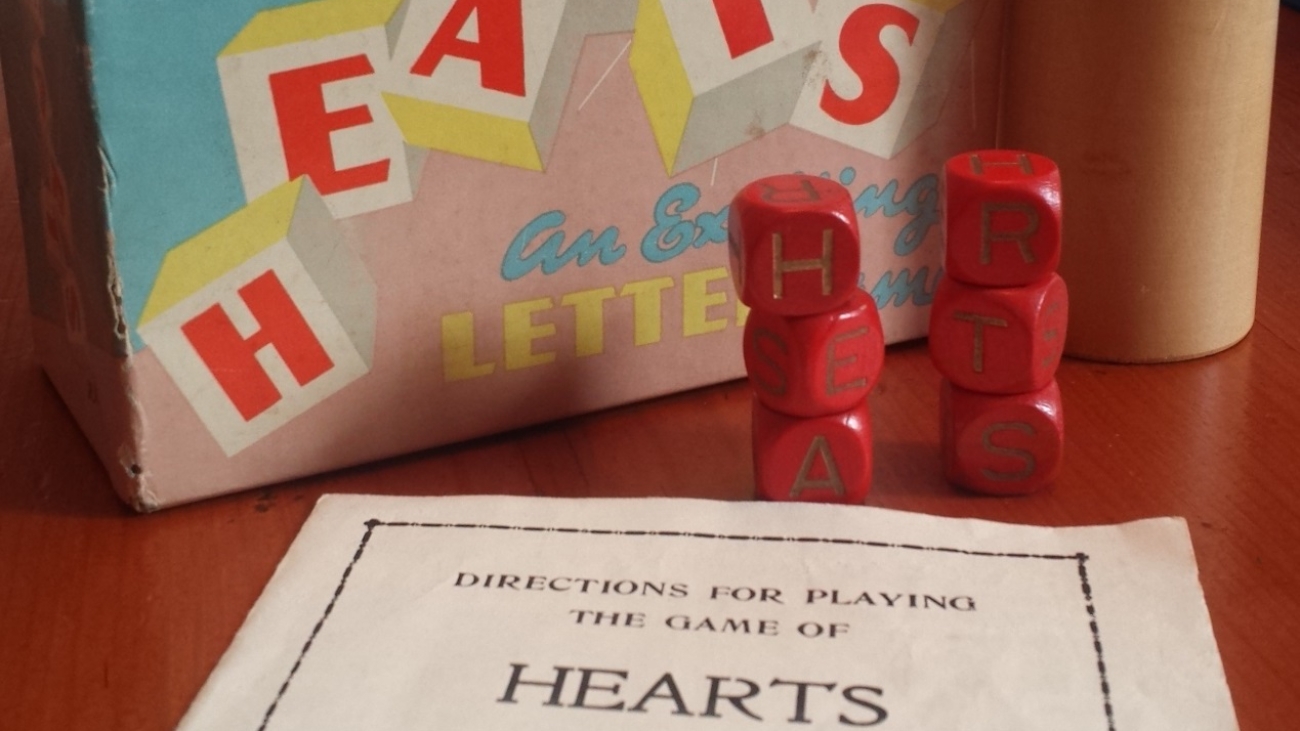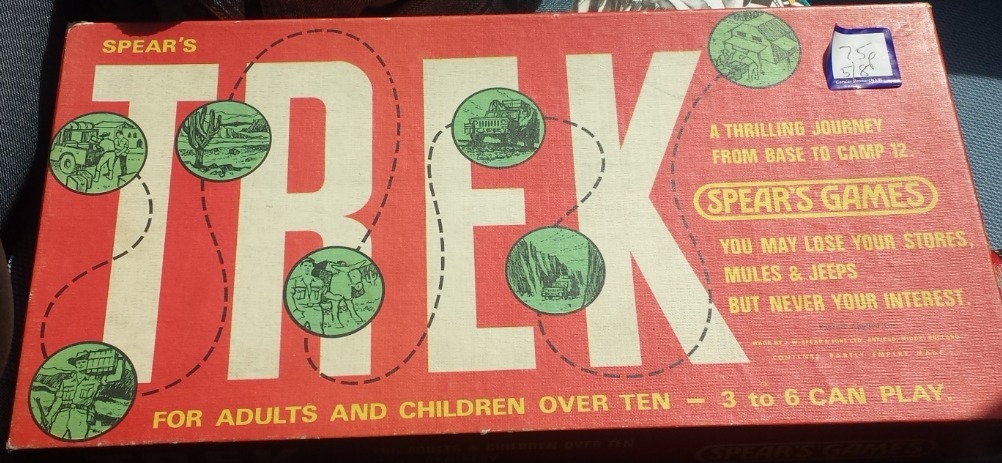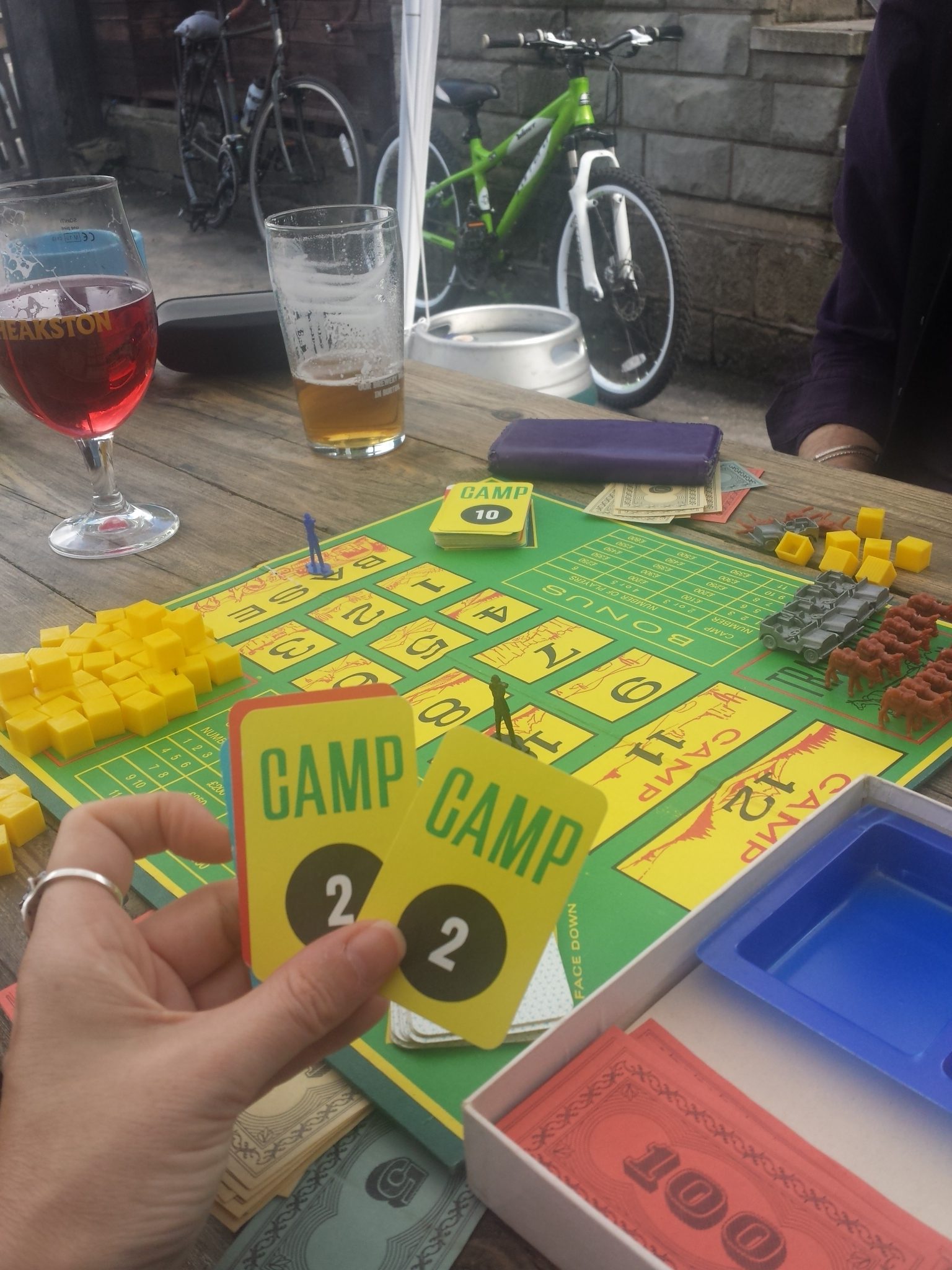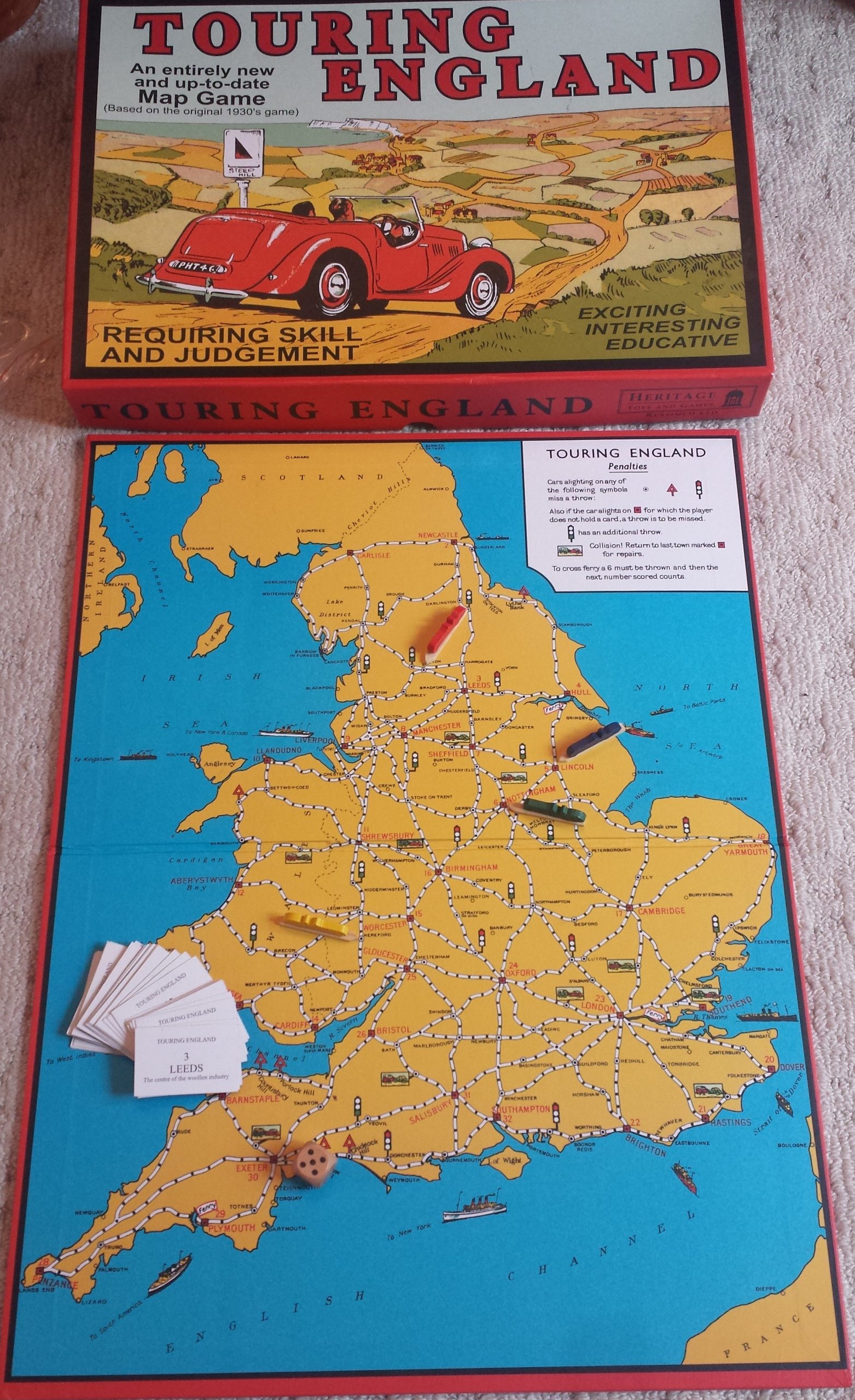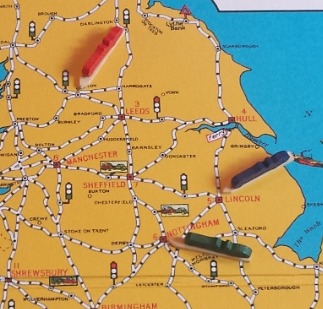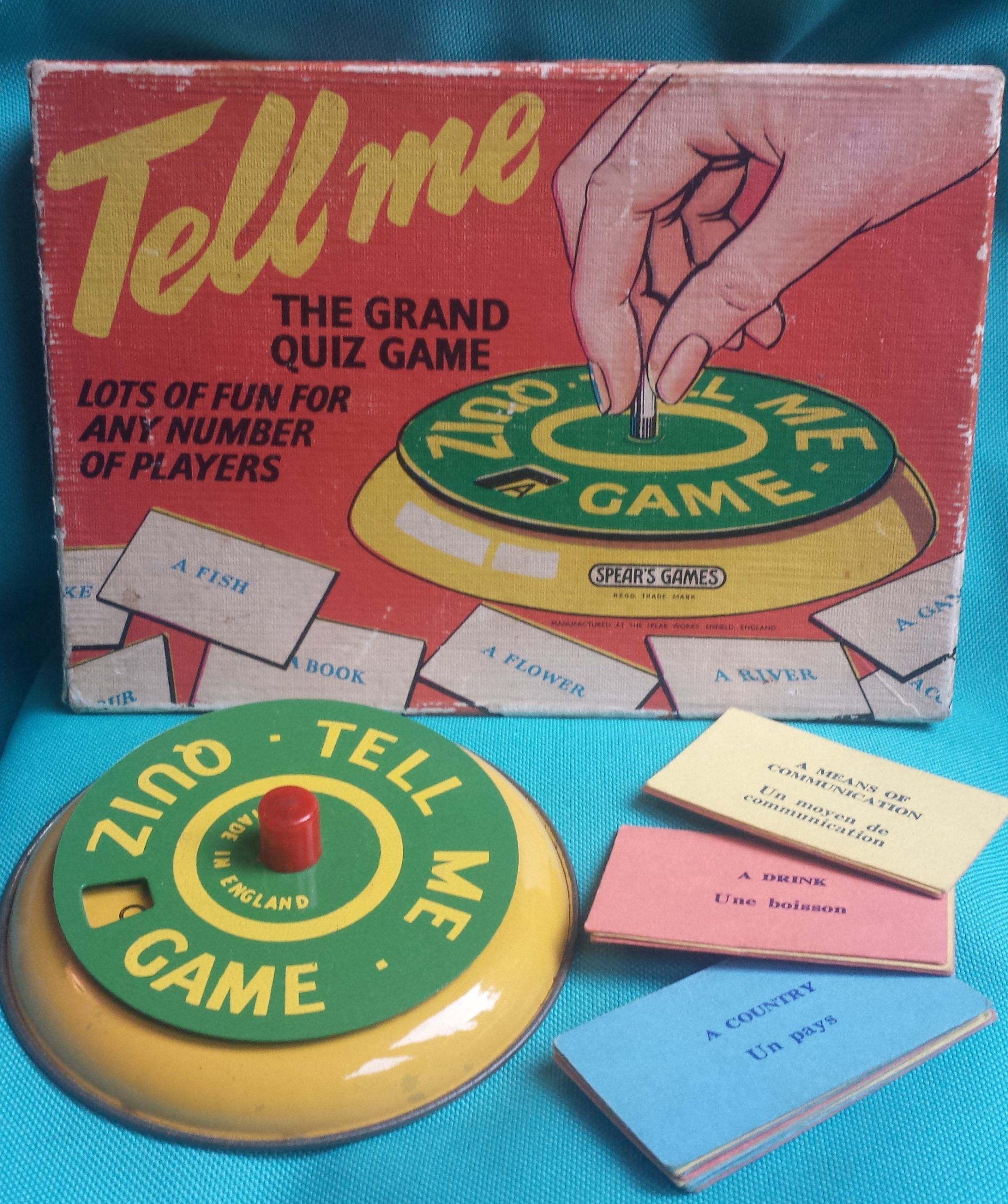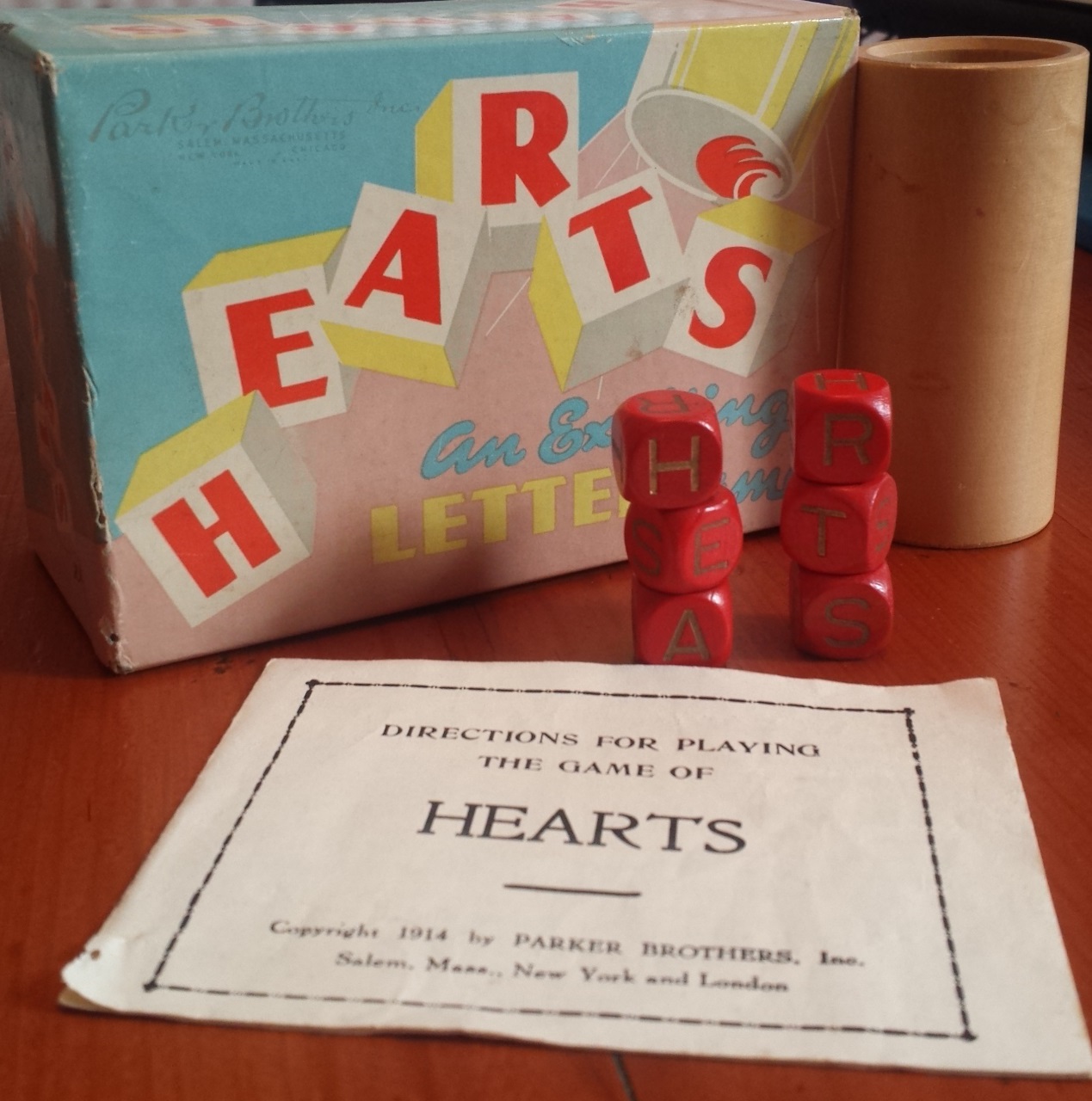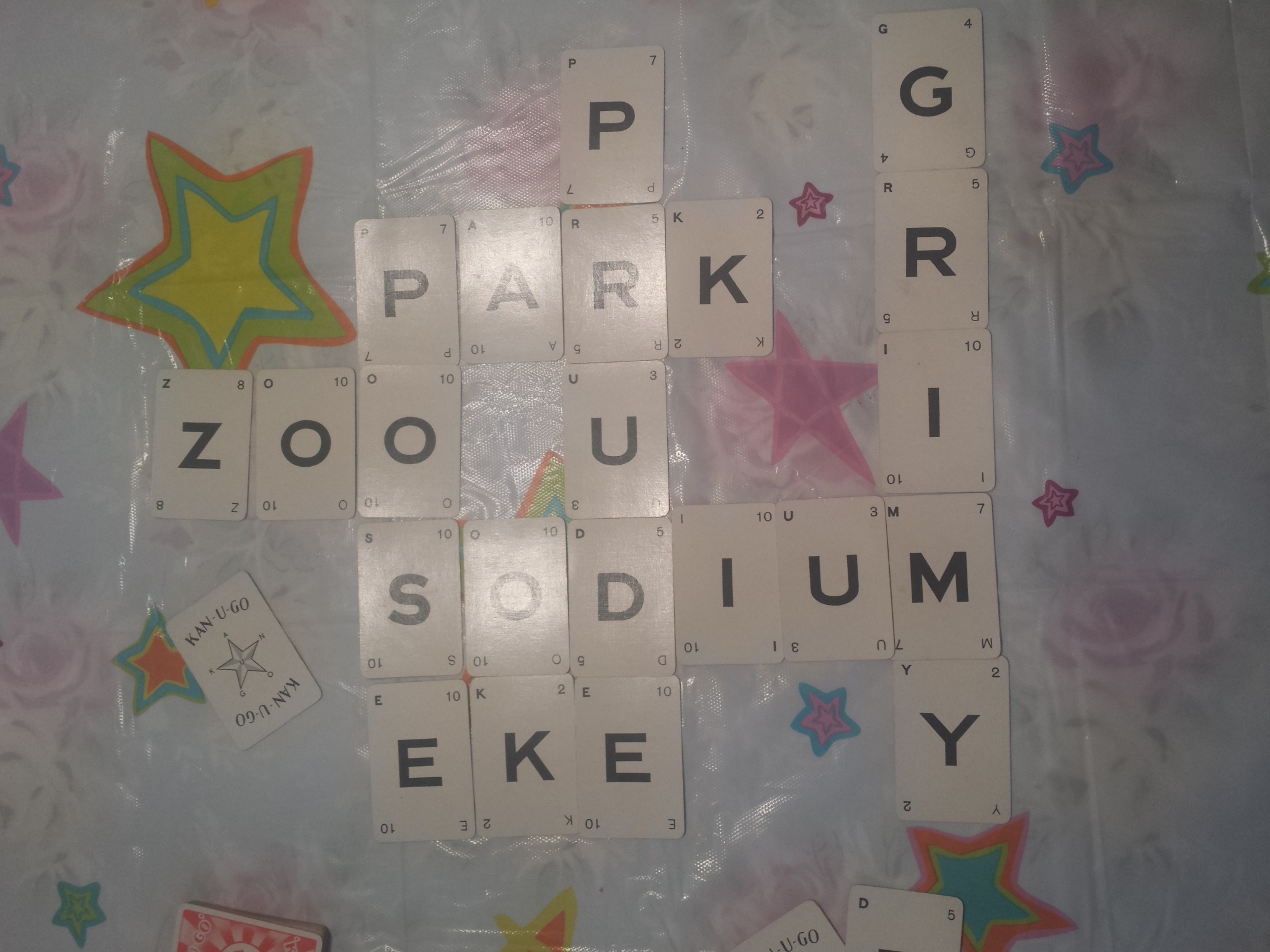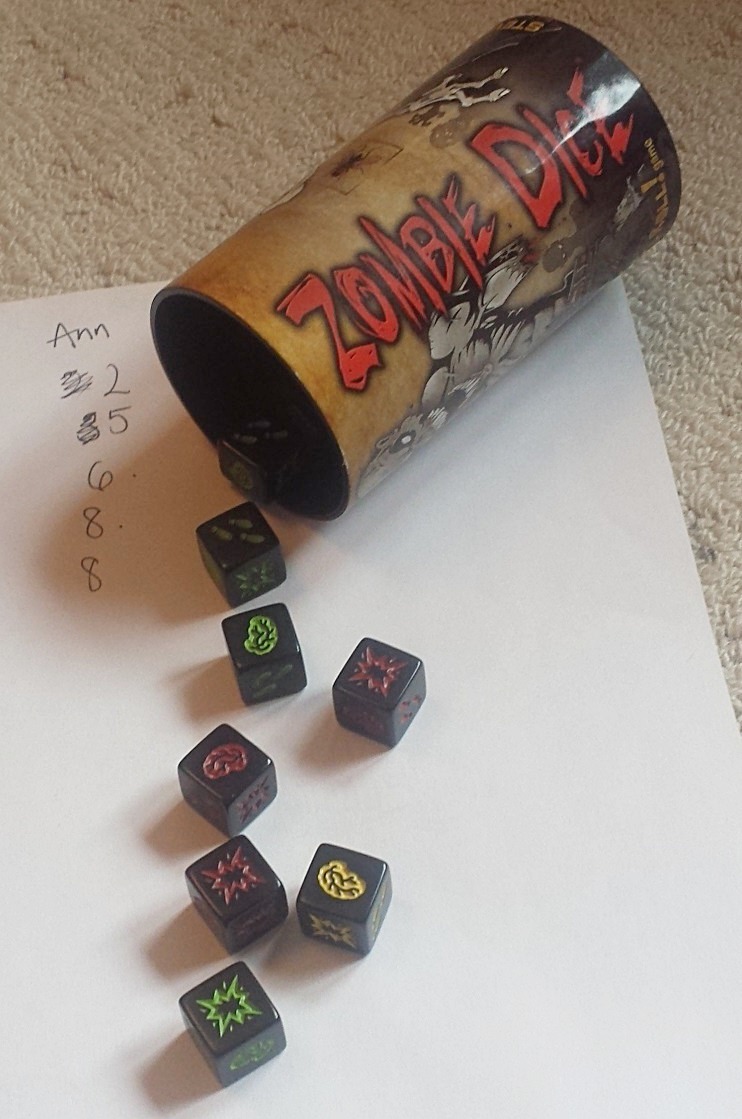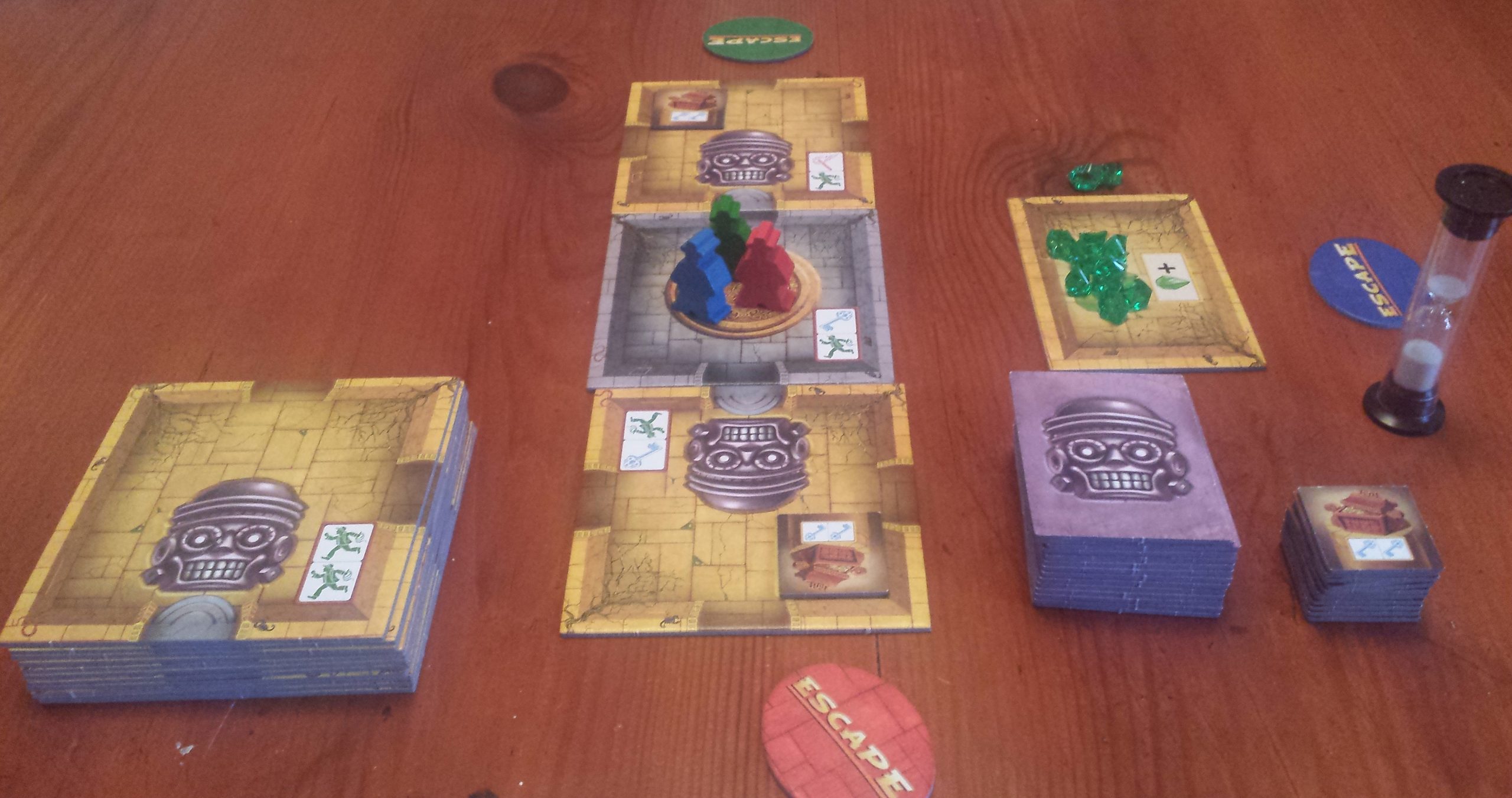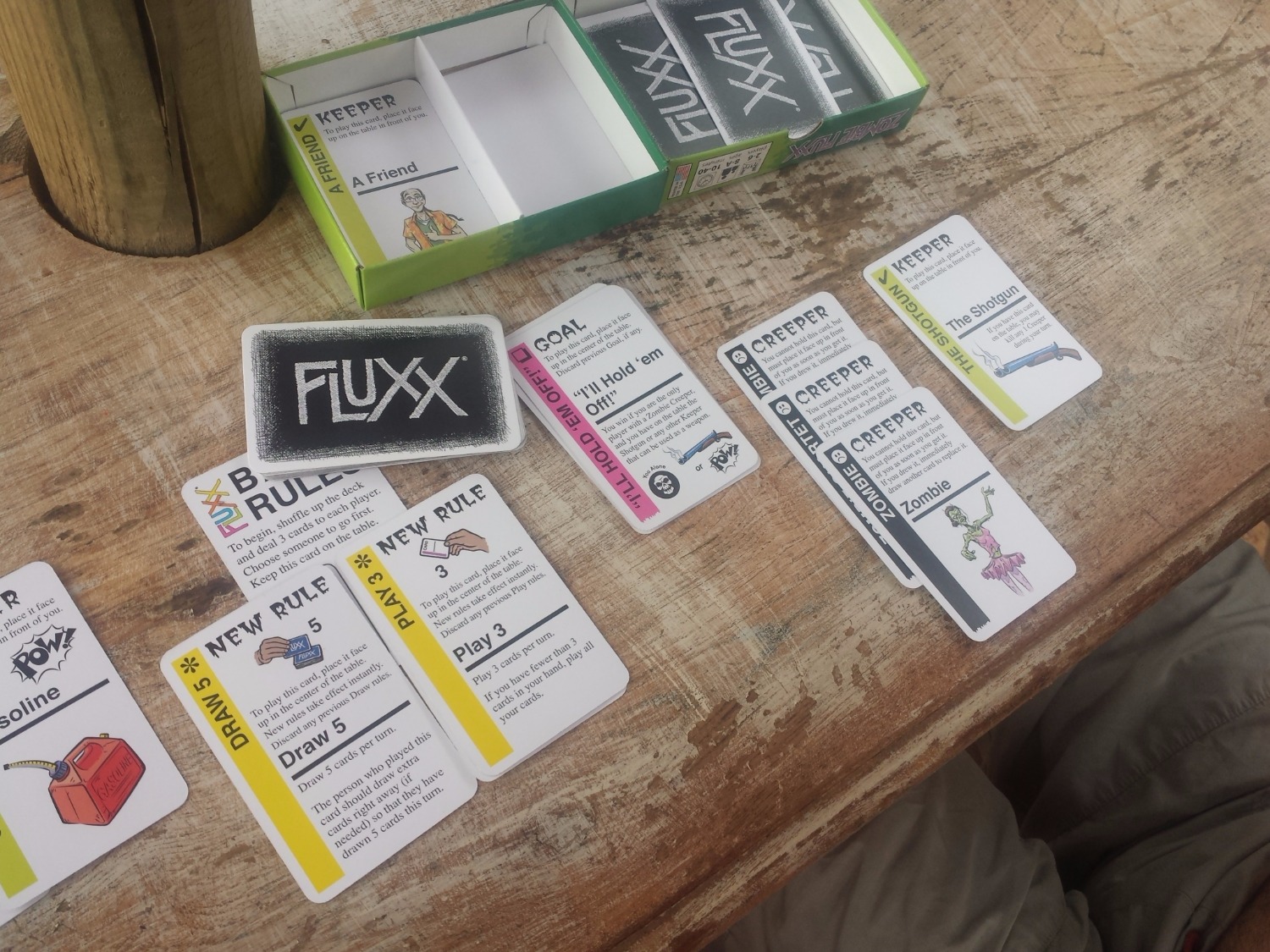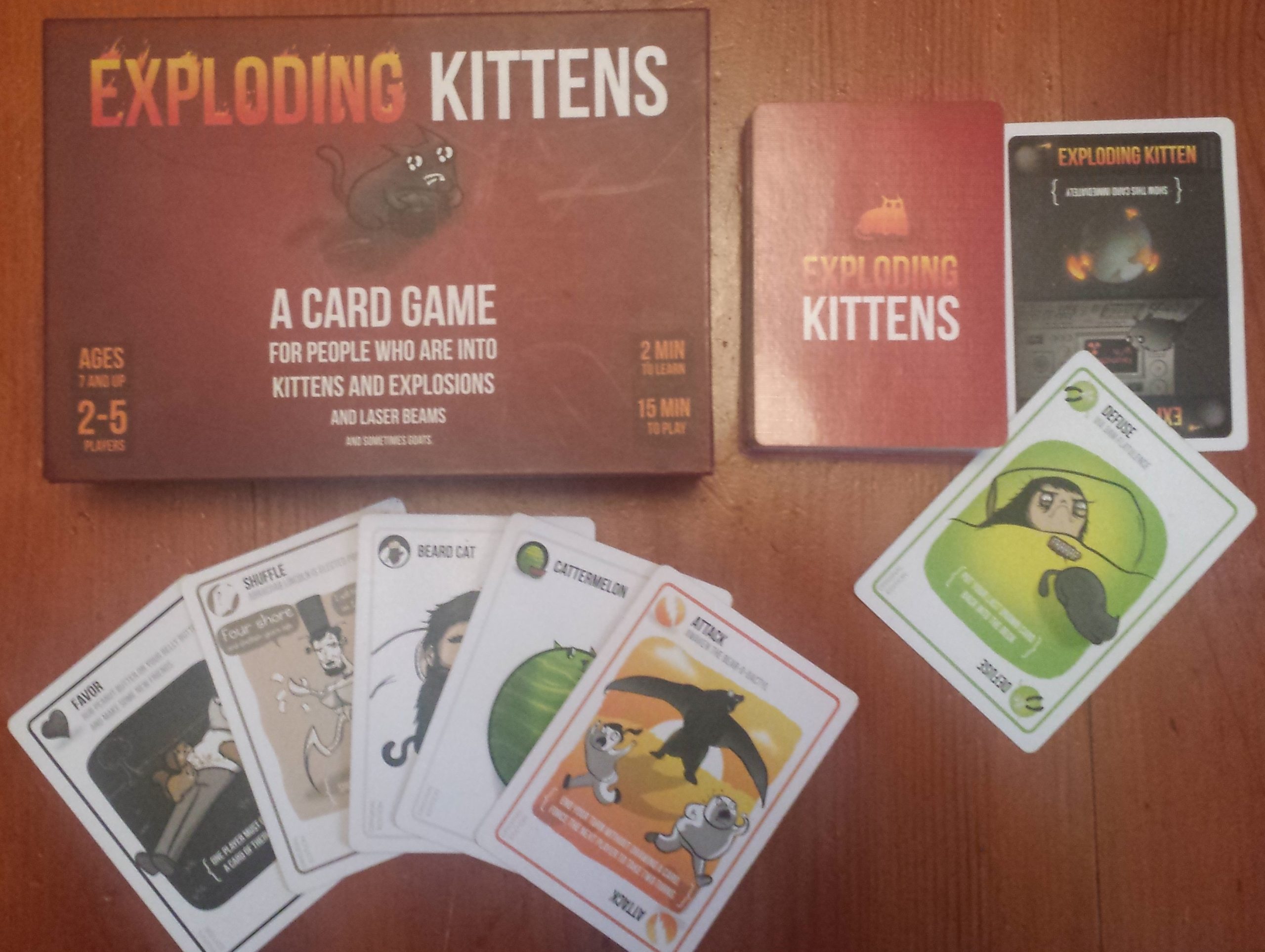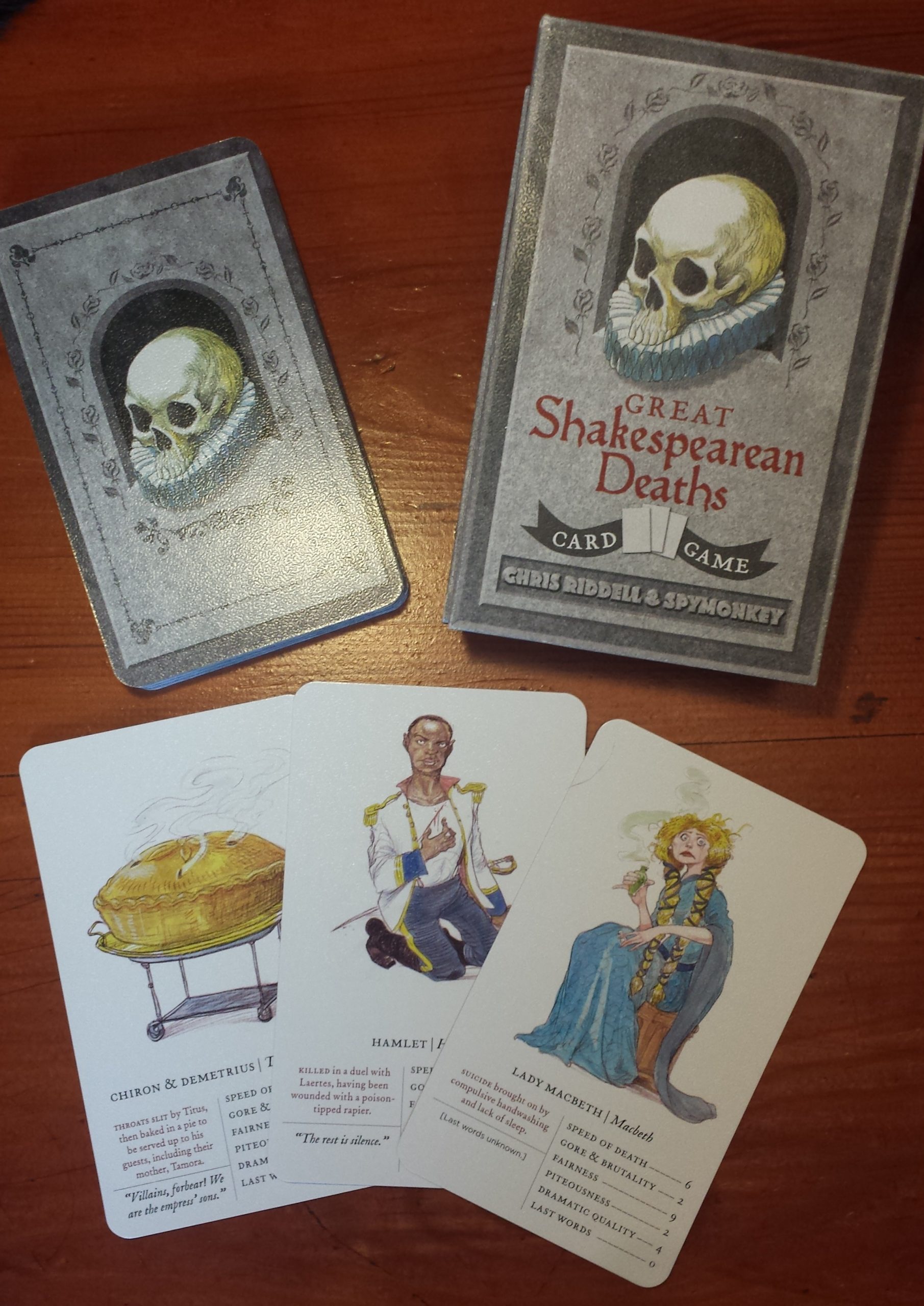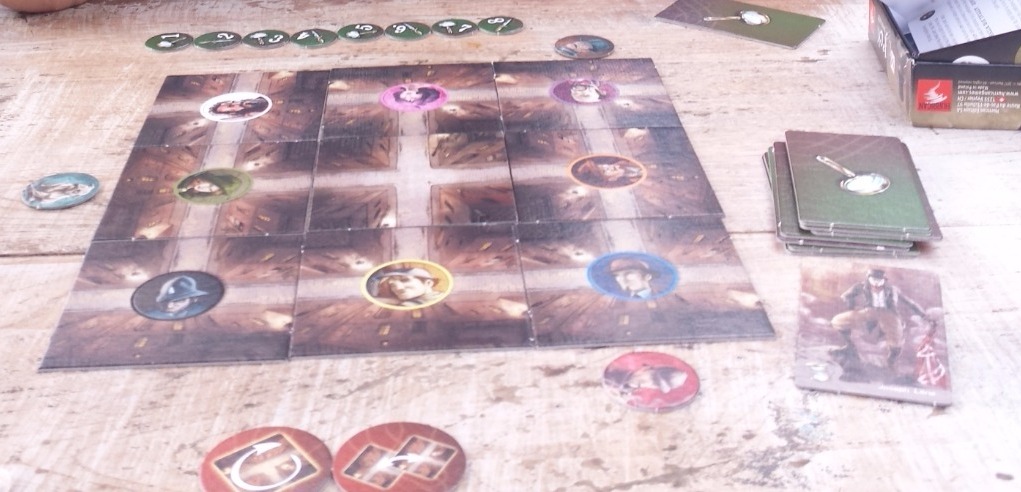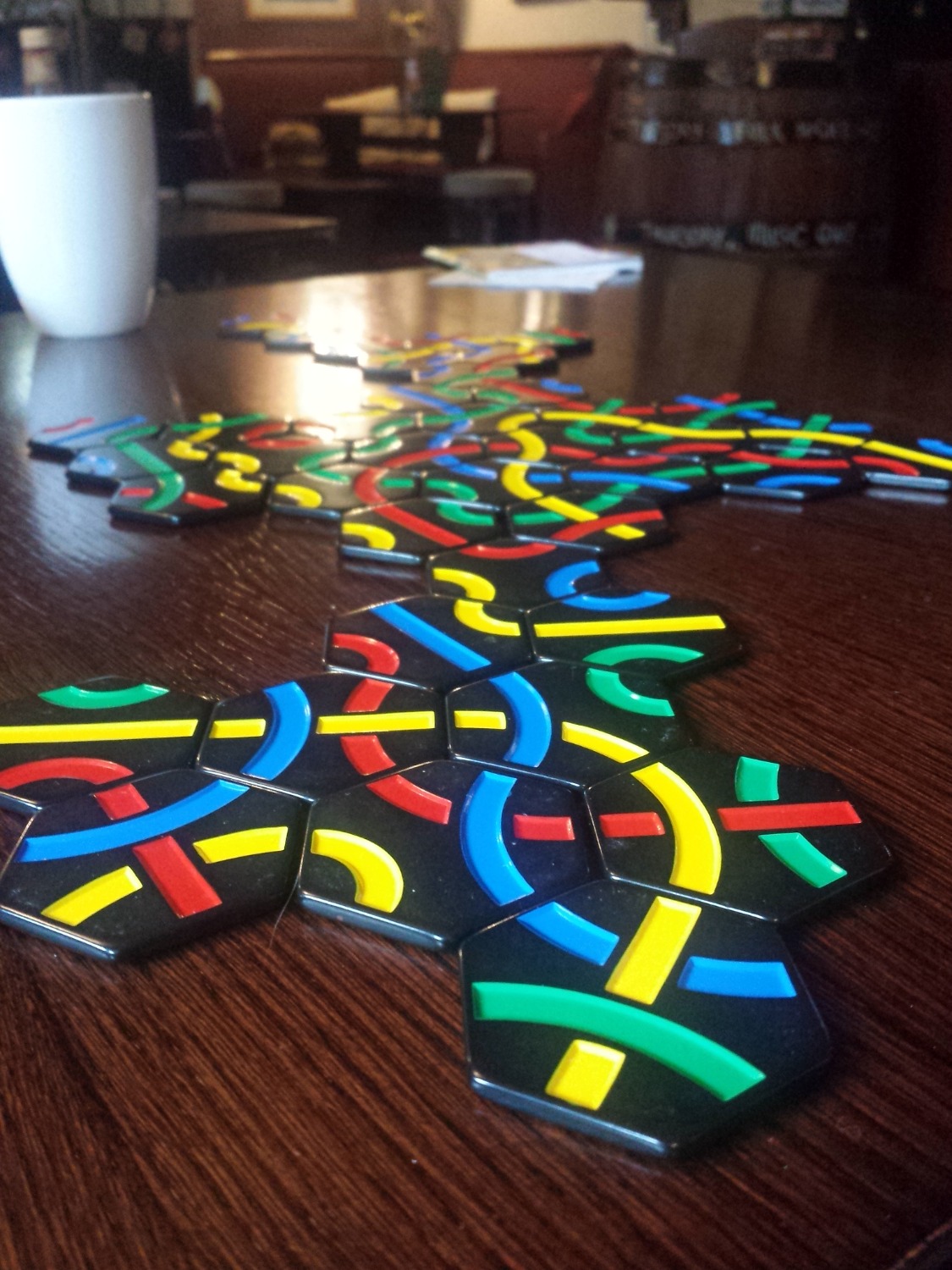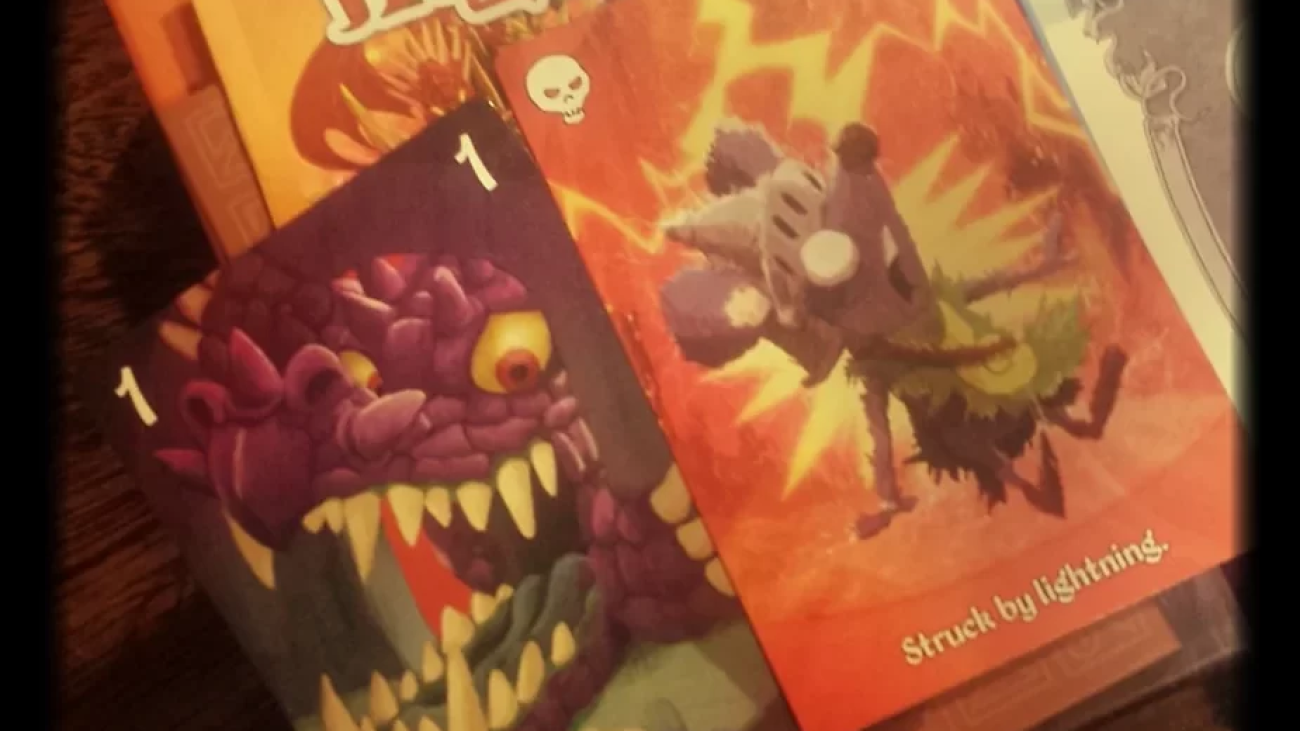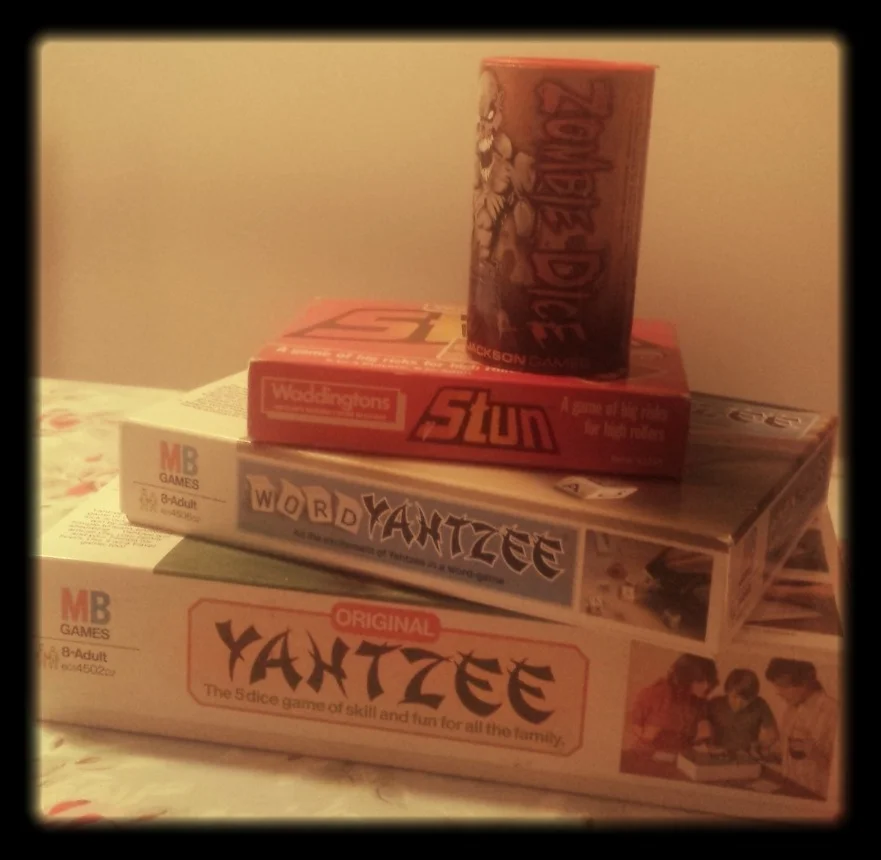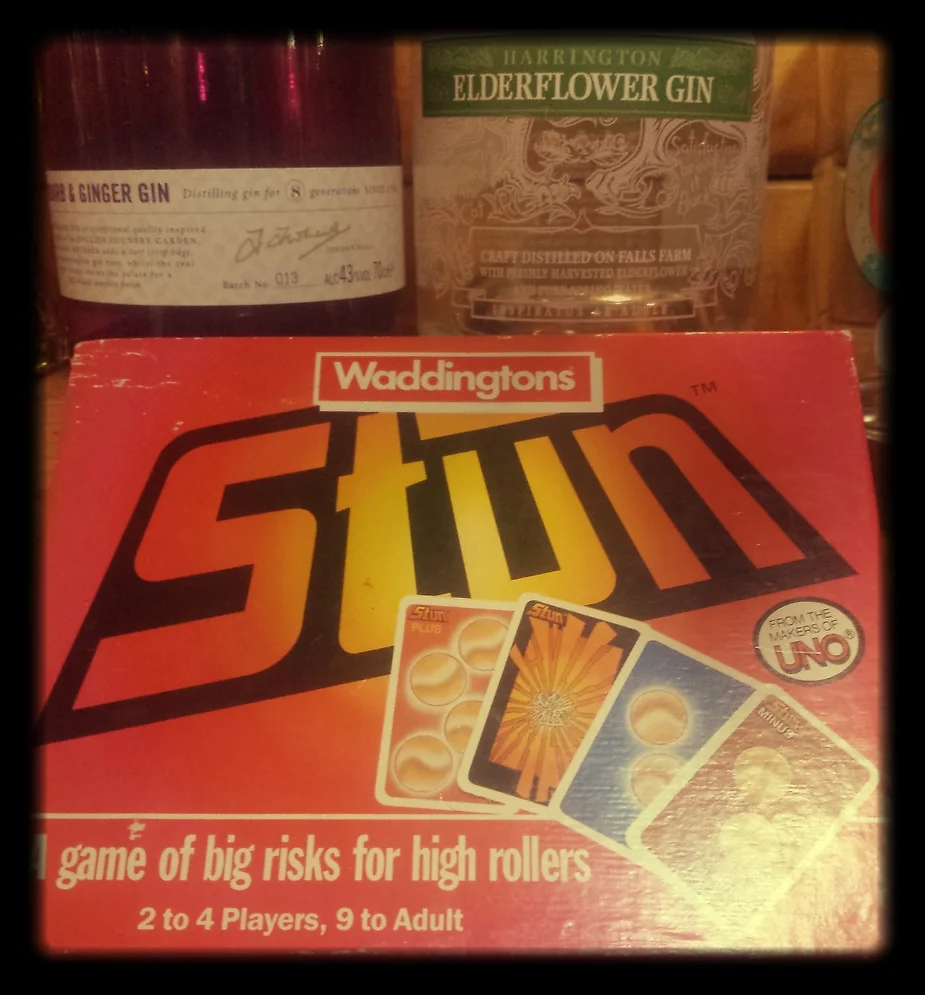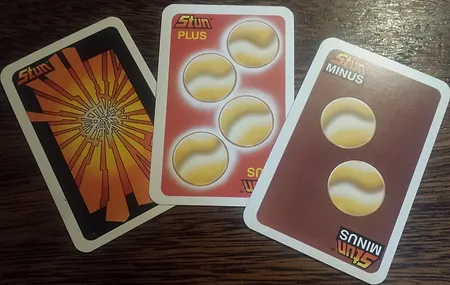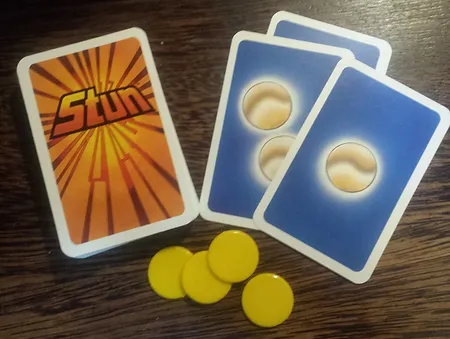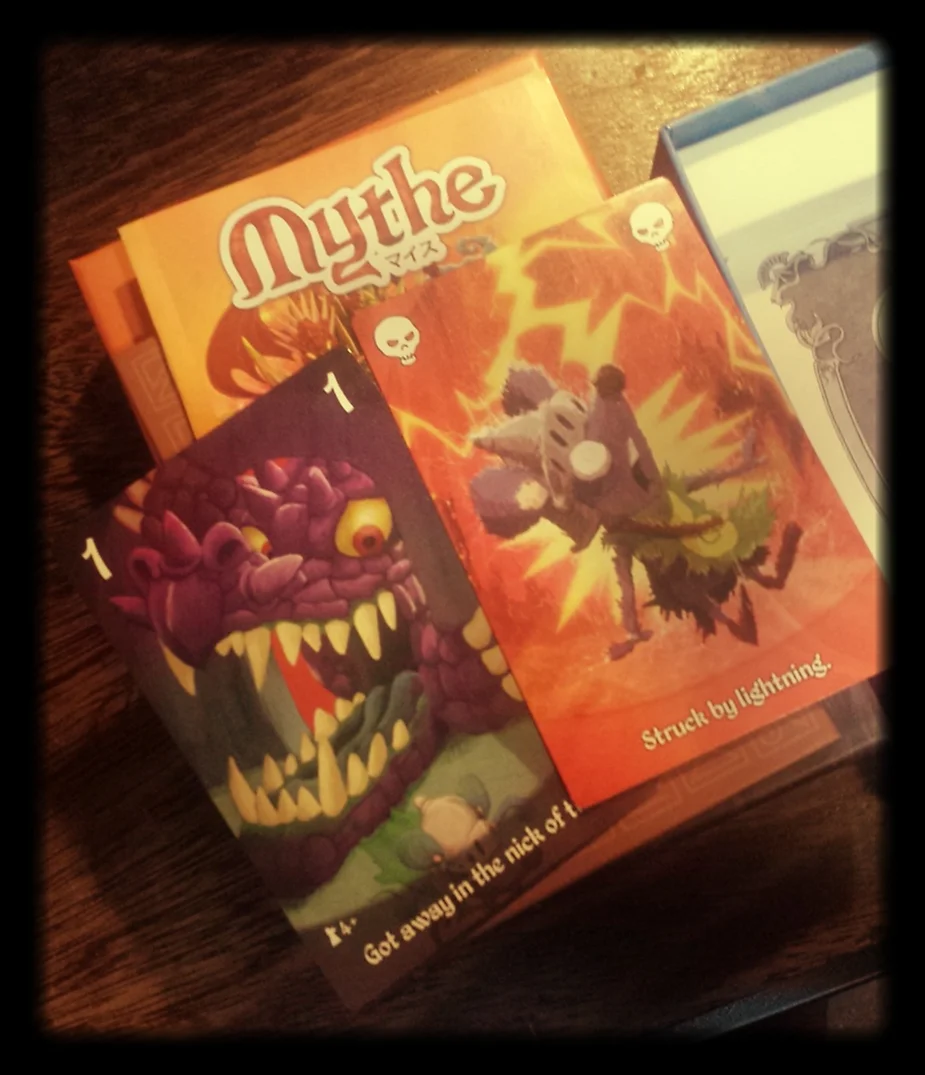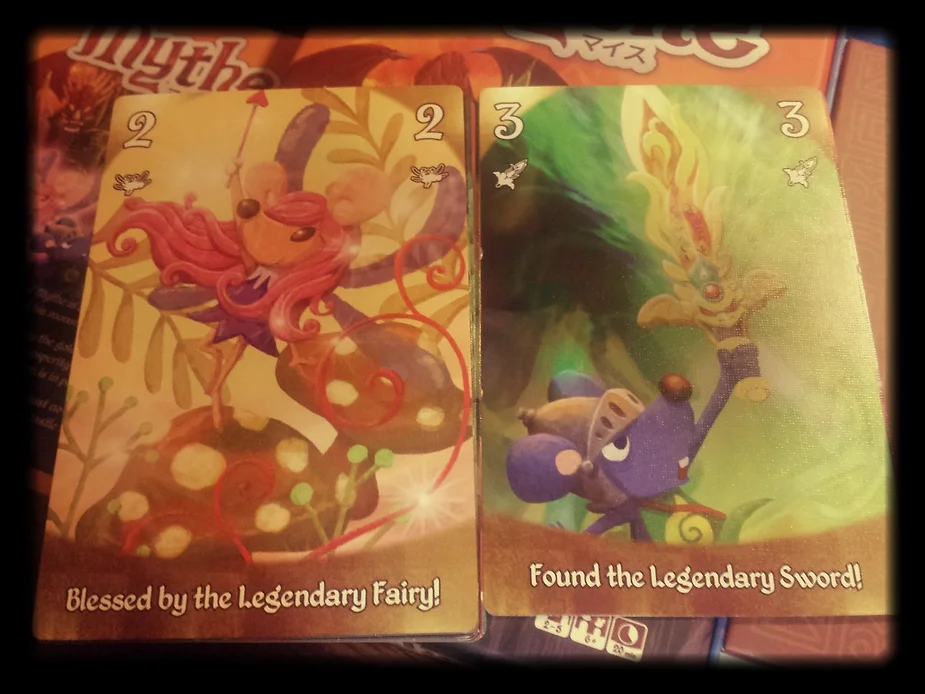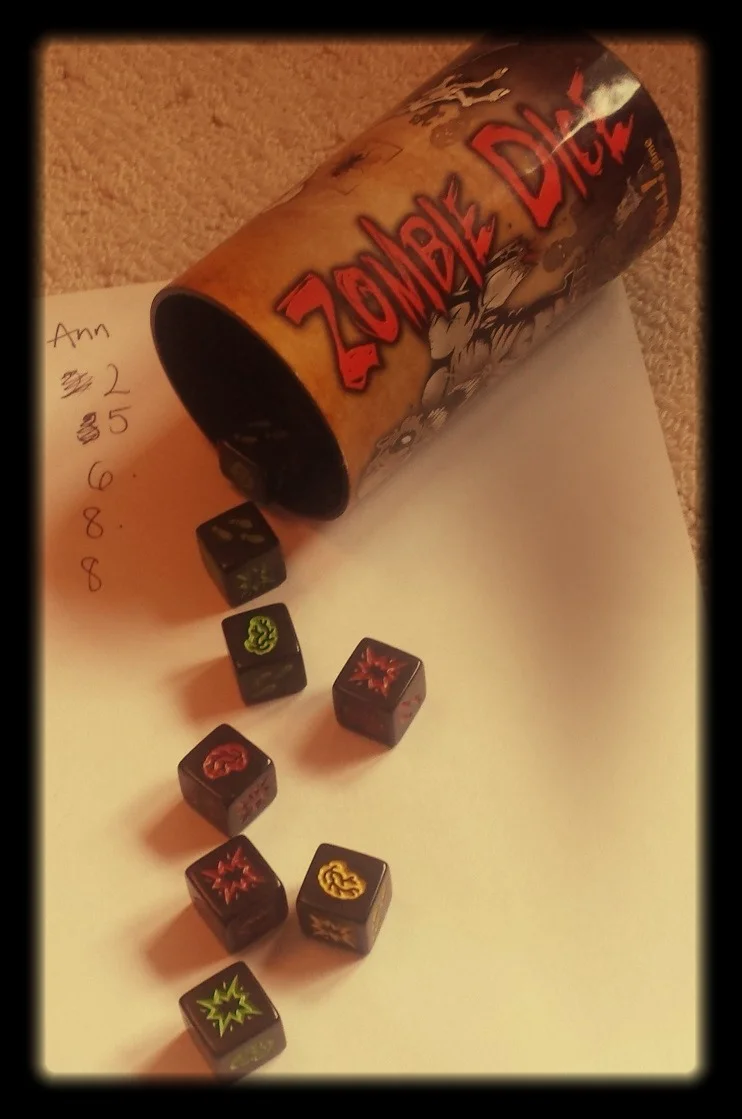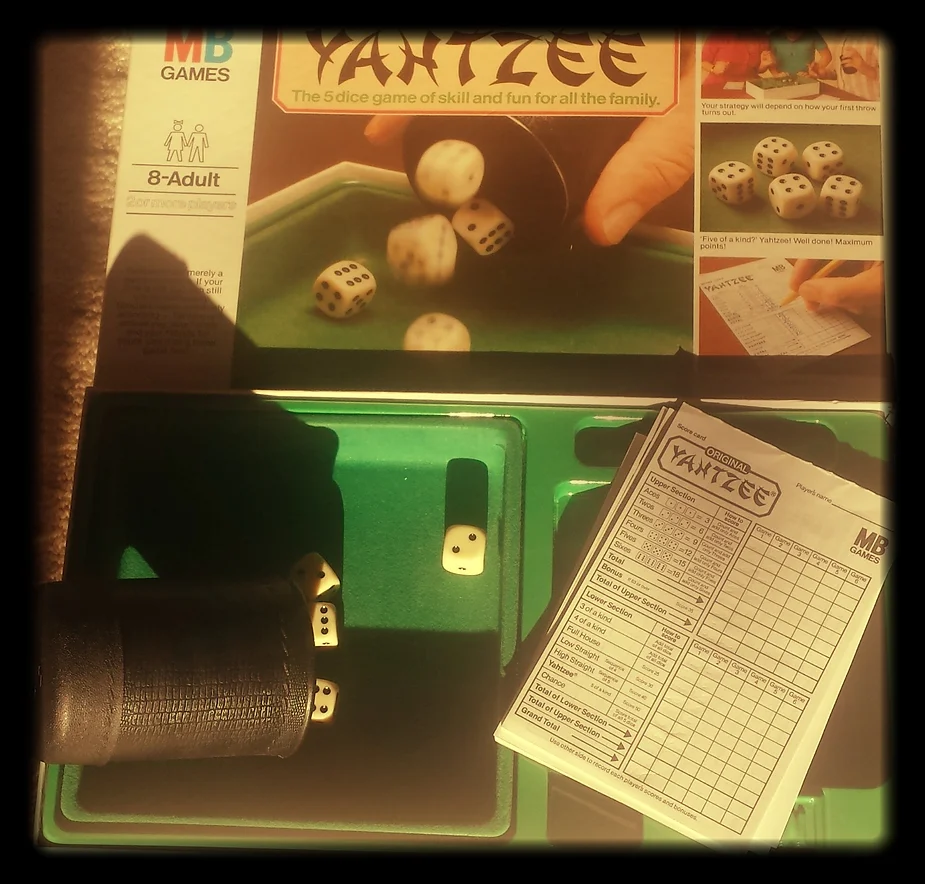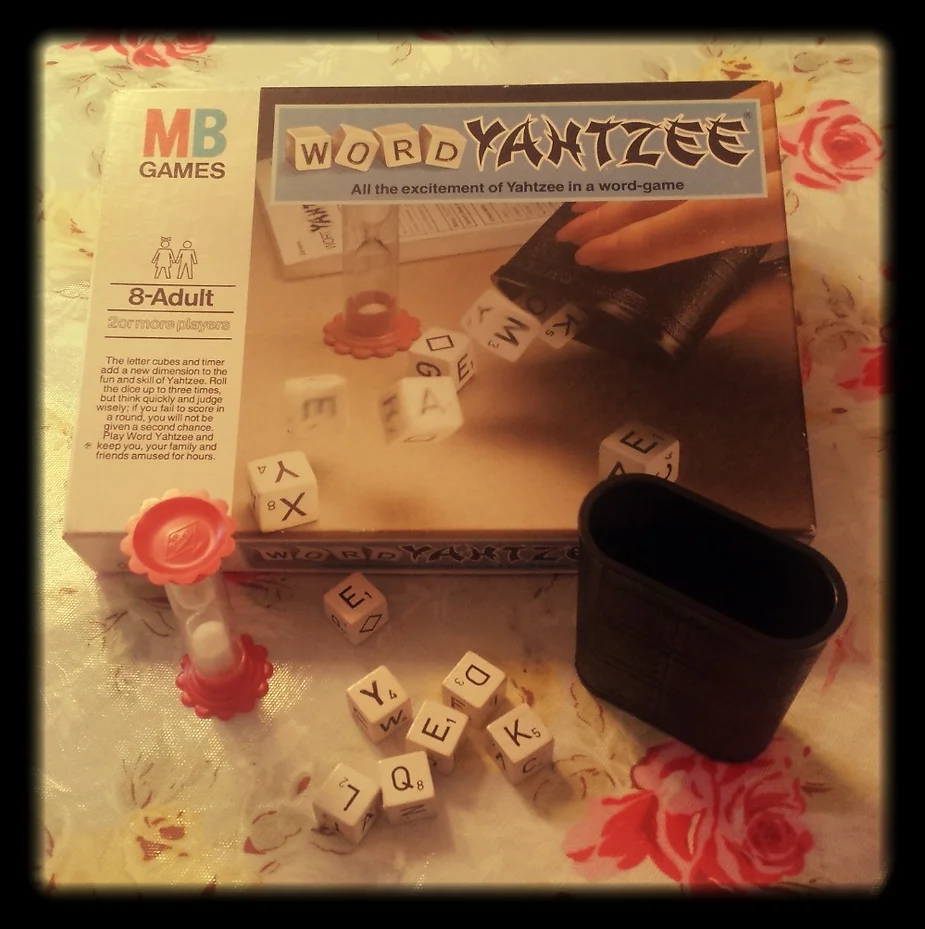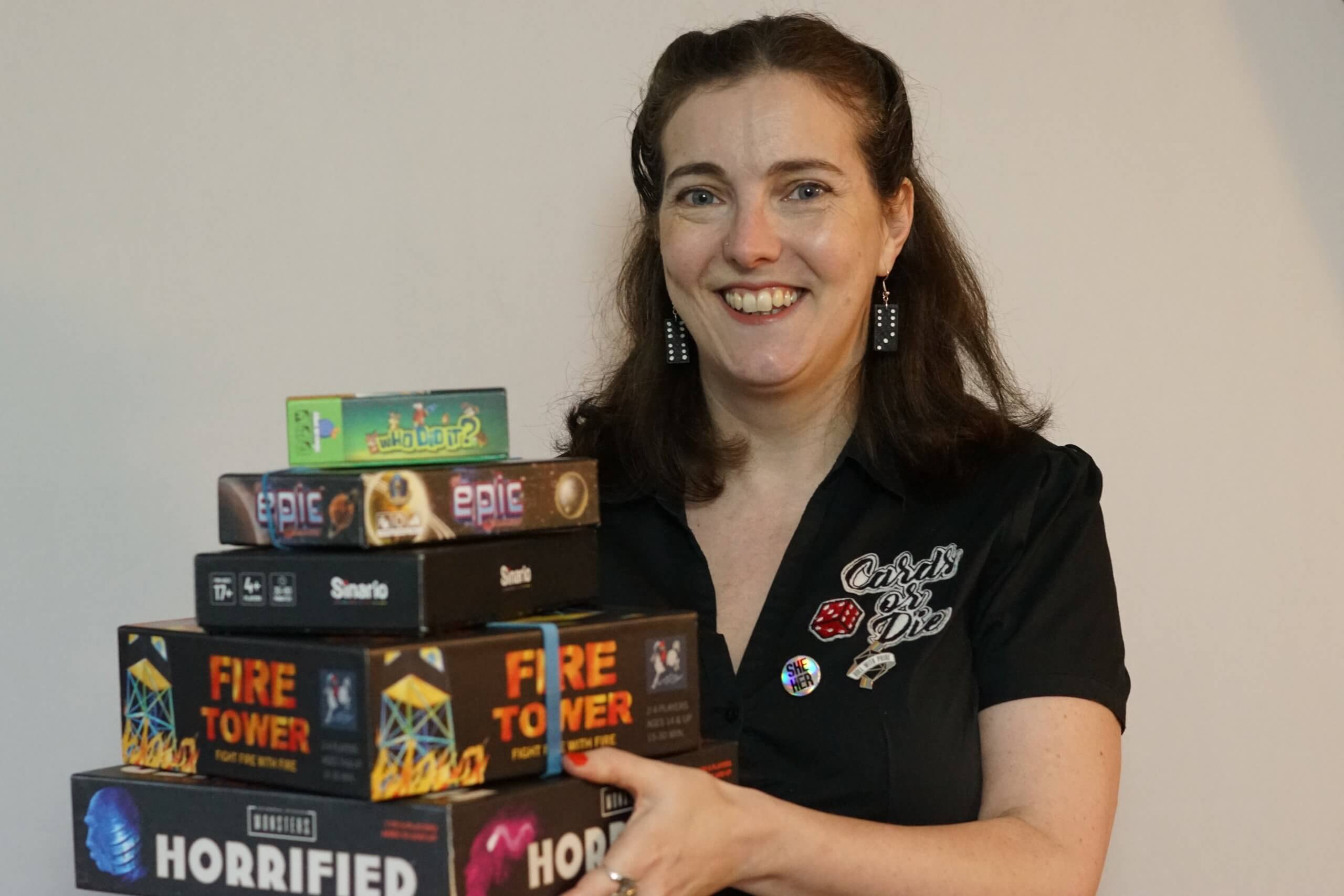I firmly believe that there isn’t an age limit on games. Maybe it was because I was raised on games that proudly boasted their upper limit as 99 years of age. The likes of Spears, Waddingtons and MB knew all along that good games are good for everyone. As adults we don’t play enough. It can sometimes feel like we wait to have children around to give us the excuse to be daft, to let go of our inhibitions and immerse ourselves in play.
Play for the sake of play is perfectly valid but if that isn’t reason enough then think about the other benefits – the escapism of games, the mindfulness of them, the exercise for your brain.
And it’s not just me who thinks so…
“Play leads to brain plasticity, adaptability, and creativity. Nothing fires up the brain like play.” Stuart Brown
“Play stimulates the parts of the brain involved in both careful logical reasoning and carefree, unbound exploration.” Greg McKeown.
So for that reason I haven’t organised these by age or, god forbid, gender. If you want to know what sort of games ‘women’ like then I really can’t help you. At all.
I’ve included a wide variety so there’s just a short description of each game – give me a shout if you want any more details. Each title takes you to a website where you can buy the game – I’ve used amazon a lot for ease but you might want to also look on Zatu Games , Goblin Games or pop into a real life shop like Travelling Man.
Gross Games
These are some of my most popular pub games, it’s not just children who find poo inherently amusing. Quick to learn and fairly quick to play. most of these require a reading age of about 7.
You are monkeys flinging poo at each other. Use cards to deflect poo aimed at you or to clean some poo off. You’ll need some way of keeping score – I went for brown counters of course!
Easy to play – the instructions are on the cards.
Work out which animal did the poo in the living room! Race to get rid of all your cards by being the quickest to match the last card played and making plausible accusations! A cross between snap and a memory game. No reading is required in this one.
This is a swear free take on the classic ‘shithead’, also handily has action cards so you don’t have to begin by trying to remember which card does what! Be the first to get rid of all your cards, try and avoid having to pick up the discard pile. It comes with frankly foul scratch and sniff stickers which I suggest you reserve for the loser.
There’s no reason why gross games can’t be strategic! Be the goblin who gobbles the largest amount of disgusting foods. Collect sets of the same food but watch out for a variety of attacks such as vomiting, stealing and being made to eat your greens. Each goblin has their own special ability. It plays up to 12 goblins.
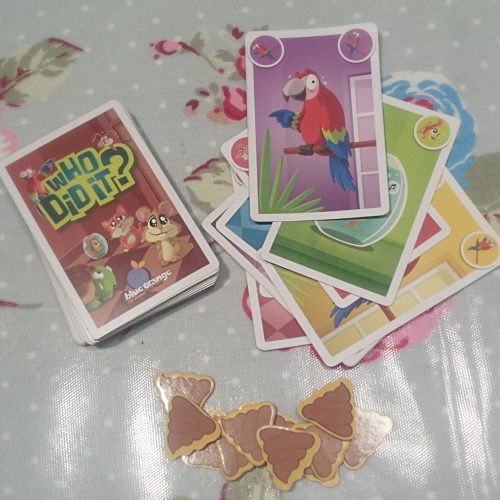
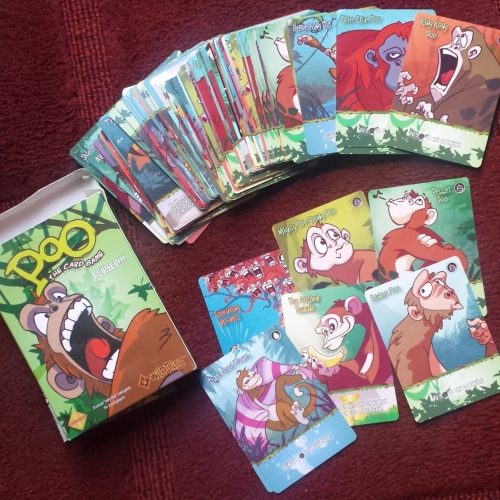
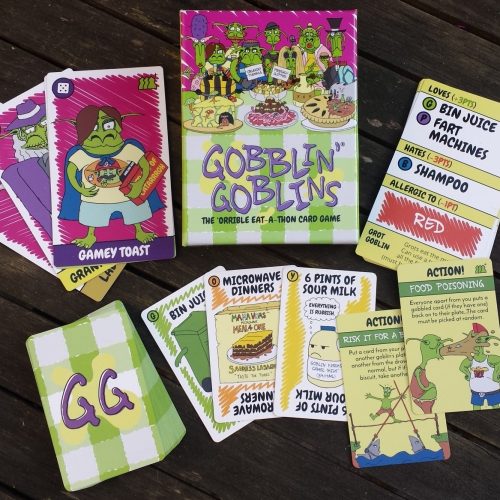
Fast Reactions
Be the first player to grab the object which is not represented on the card. In the picture below – working from left to right -you would need to grab the grey mouse, then the blue book and the grey mouse again. If you successfully grab the correct object you keep the card, and the person with the most cards wins. This is an addictive and easily portable game. I’m convinced that it uses part of your brain that nothing else uses! It definitely exercises those little grey cells.
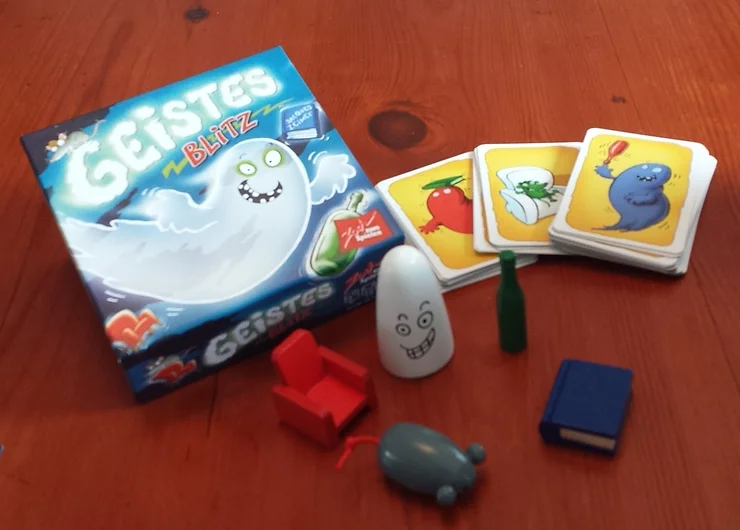
Although a lot of people seem to have this it is an absolute classic and I couldn’t do a gift guide and not mention it. It comes in a small round tin, perfect to pop in your bag or in someone’s stocking. Similar to snap but each card features a number of images – you must match one of these with one on another card. You can also get themed versions – we have Star Wars Dobble and the Harry Potter version is on my Christmas list. There are 5 mini games which are entertaining with children or wine but probably not both!
A frantic dice rolling game for up to 4 people. You each get a set of dice which you race to place on the matching dice images. First to get rid of their dice shouts Zonkers! calling an end to that round. But watch out – fastest doesn’t always mean best. A test of observation, speed and strategy.
This also comes with a number of mini games so it’s great value!
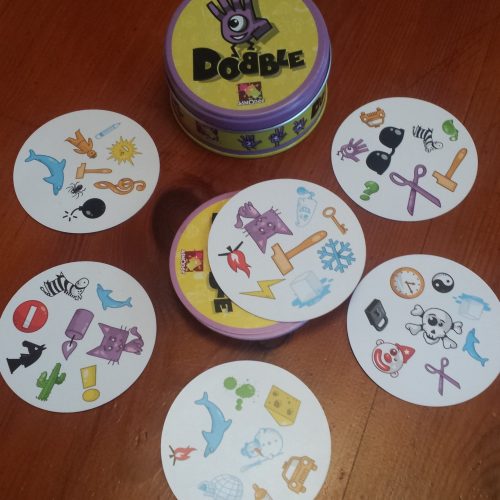
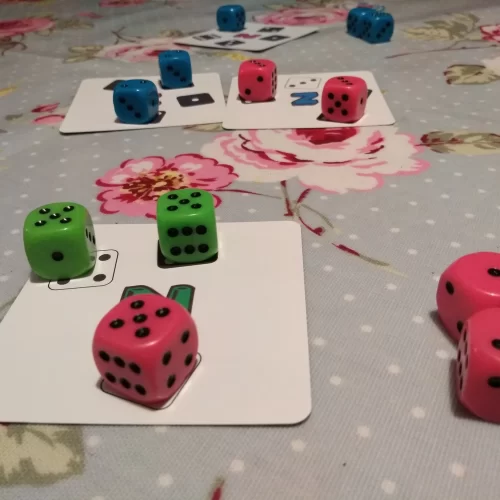
Longer, thinkier games.
A co-operative game where you work together to collect the treasure you came for and escape the island. But the island is slowly flooding which hampers your efforts. If you are thinking of trying co-operative games then this is a great starting point.
If you have enjoyed this then you might want to try Forbidden Desert or Sky as these are similar but more challenging.
A short version of the classic Ticket to Ride Europe which was an instant hit and remains a best seller. Collect cards to enable you to place buses on routes across London. You score bonuses for linking certain places and for completing set routes. A nice strategic game with lovely pieces – who doesn’t love playing with tiny buses! It takes about 30 minutes whereas you can be playing the other versions for over an hour. So it’s a good one to try and there are loads of variations of this available so if you enjoy this you may want to collect some of the others.
Simply roll, move and place your dice to make sets of four or more. A lovely tactile strategy game which like all my favourites is quick to learn but gives you lots to think about. There’s also plenty of opportunity to thwart other people’s plans which is always satisfying.
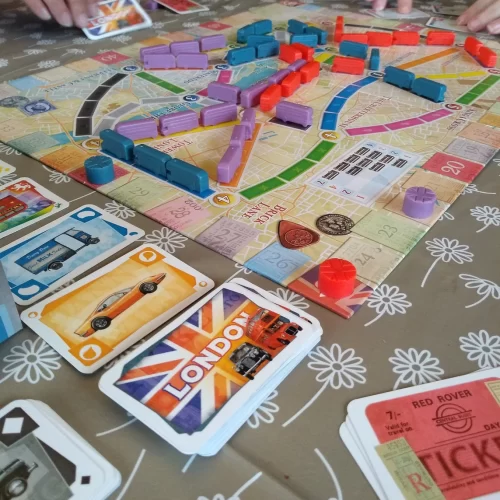
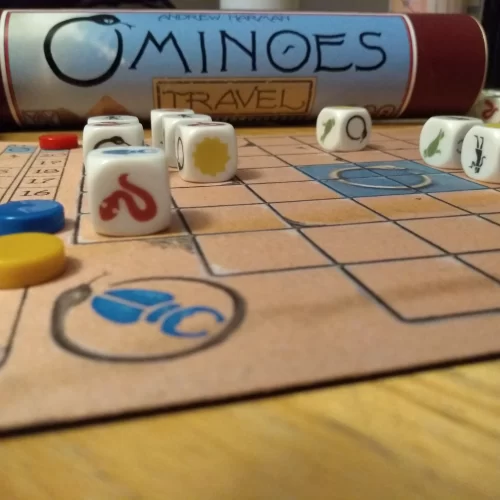
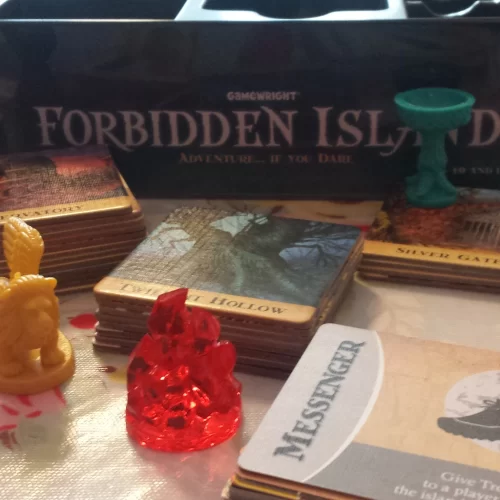
Sleuthing
What could be more christmassy than donning your deerstalker or firing up your little grey cells. Settle down with a nice milky drink and these two classics:
A favourite in our house. Work your way round the board collecting clues about the crime. Each case is different and you must race your opponents to solve it and get back to Scotland Yard with the solution. Some of the clues are a little cryptic and some are quite tricky. Fine for adults but children may need some guidance or to team up.
You have to work out who the murderer is by playing a variety of detective and other tactical cards. Then, once you have uncovered the murderer you must prevent them skipping off into the sunset. The murderer meanwhile will be doing everything they can to freeze you out of society and make good their escape. With 5 or 6 players the murderer has an accomplice. Also works brilliantly as a two player game where the murderer is trying to escape while the detective tries to catch them.
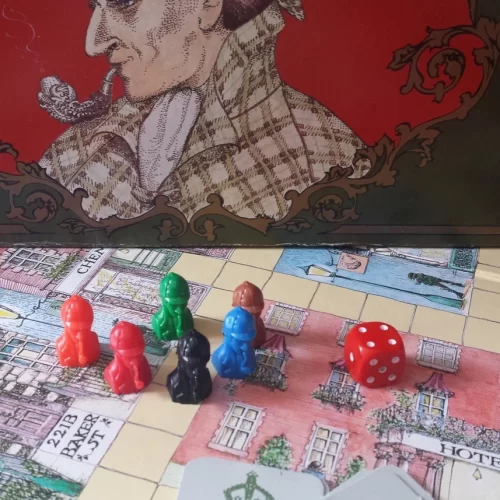
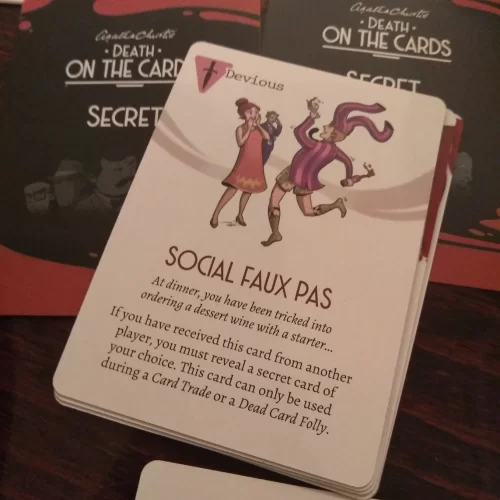
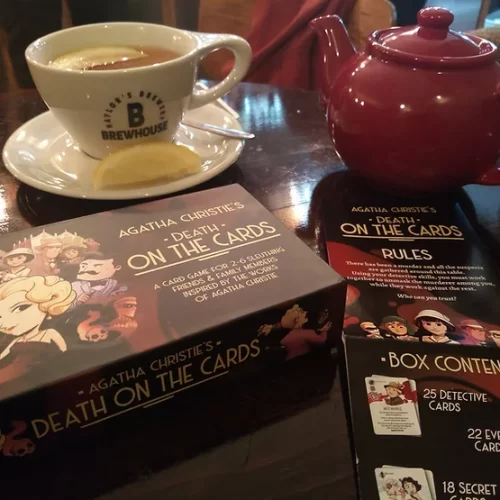
Words
Each card has three letters on, turn over a card and trigger the bomb which will begin to tick loudly! Say a word which contains the letters shown (roll the die to determine whereabouts in the word they must be) and pass the bomb on to the next person. Continue to pass it with each player saying another word containing those letters until the bomb explodes (it has a variable timer so you can never know when it will go!). A great game for big groups – loads of wordy fun.
A speedy game of word recognition. Turn over the cards and shout out as you see the words appear. There are bonus cards for getting targeted word lengths and flettered cards for if you slip up under pressure! You can also push your luck by waiting for a longer word and hoping no one else has spotted your word! Each letter has a different value. At the end of the game you add up your pile of claimed words and the person with the most points at the end wins.
Wibbell++ is not just one word game but a whole system of games. There are instructions for 6 different games in the box but there are many more on the website – they will have you creating stories, making up funny phrases, racing to grab as many cards as you can by matching symbols and letters and outwitting your opponent by being the first to come up with a word containing the revealed letters.
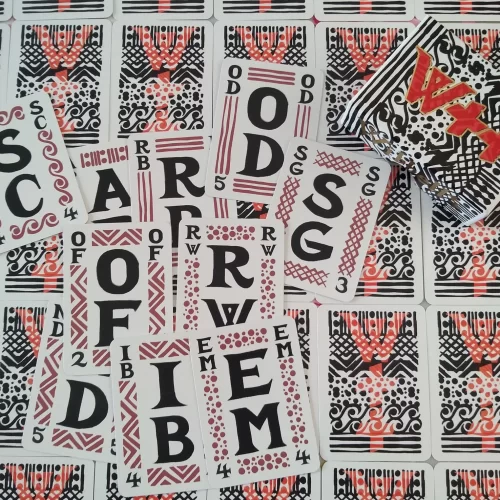
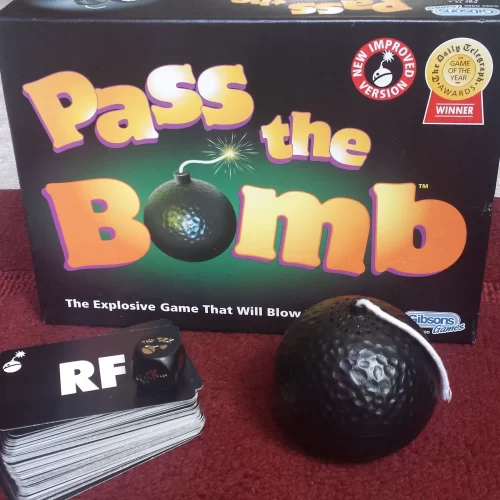
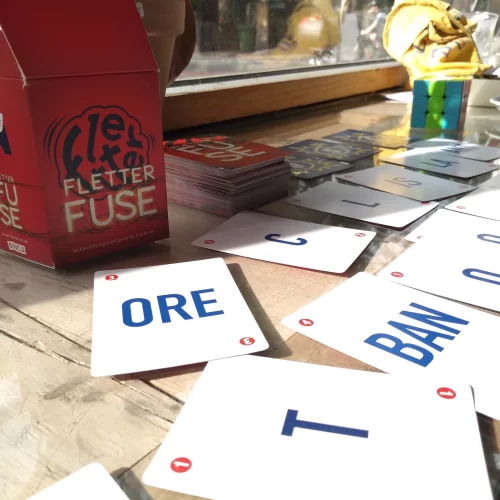
Quiz
This is always a popular game at my events. This quiz is all based on logos and product knowledge including some picture rounds. You can play up to 6 people individually or play in teams if there are more of you. I have the classic logo game but there are lots of versions available including a christmas one.
The rocks have been around a long time and their knowledge is immeasurable. Pit yourselves against them in this fun trivia quiz game. Work together to come up with an answer of 0, 1 or 2 and then give the rocks in the box a shake to see what they think. The double sided rocks have a 1 painted on one side while the other is blank, so they can land displaying 0, 1 or 2. One of the things I like about this is the quirky questions and the fact that the answer is not just given but explained so you might not start out smarter than a rock but hey at least you are learning which is more than can be said for the rocks!
This is another of my most popular games. The answers are all colours and each player has a hand of coloured cards. Reveal the question then place the coloured card or cards that you think are correct face down. When everyone is ready you reveal your answers. I think the idea that you can make an educated guess rather than being unable to answer really appeals. It also has a nice catch up mechanic allowing you to target the lead player with a colour catcher card so you can (for one turn only) steal some of an opponent’s cards.
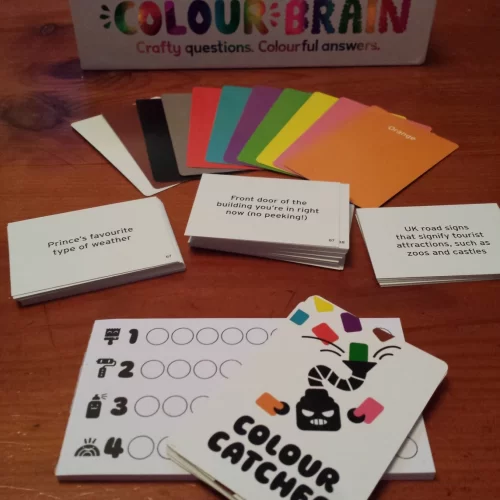
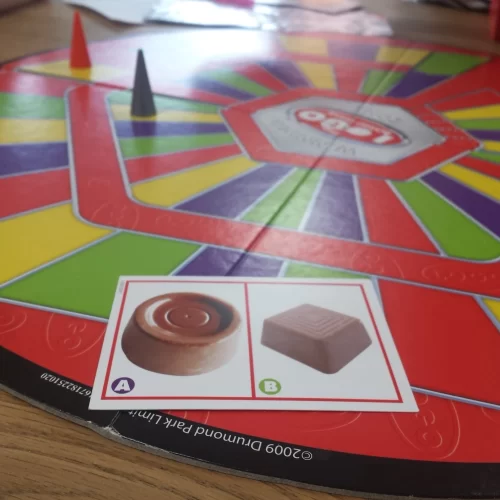
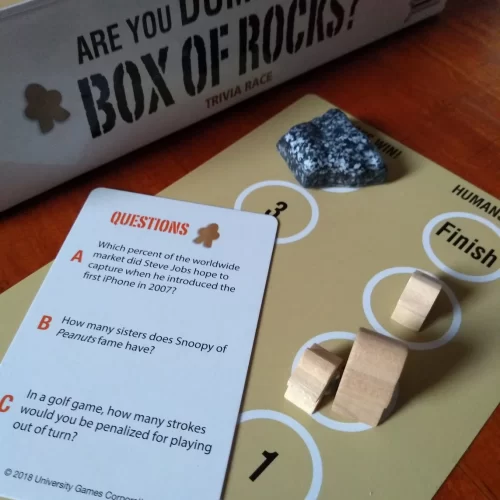
Charades based games
Gamely Games have a trio of fabulous games two of which fall into this category and can be played in teams. Soundiculous has you mimicking the sounds of various things – fridges, monkeys, karate! while everyone races to be the first to accurately identify the sound.
In Randomise you select three cards (A, B and C) choose a number 1-3 which gives you a phrase like a confused dinosaur selling lemonade.This can then be communicated through description, charades or through pictures.
The pretender is a social deduction game where you must work out who is only pretending to know what the key word is.
All of these come in lovely small boxes – perfect for posting or for stocking fillers.
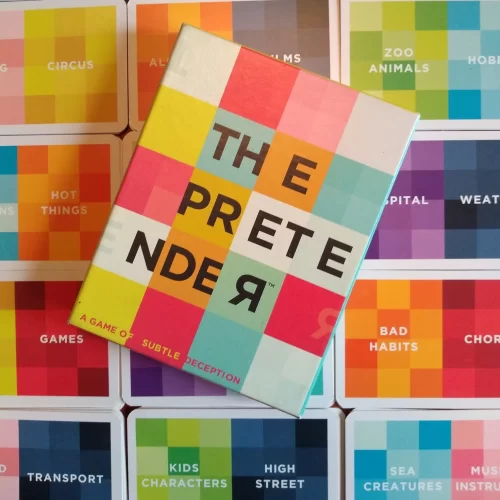
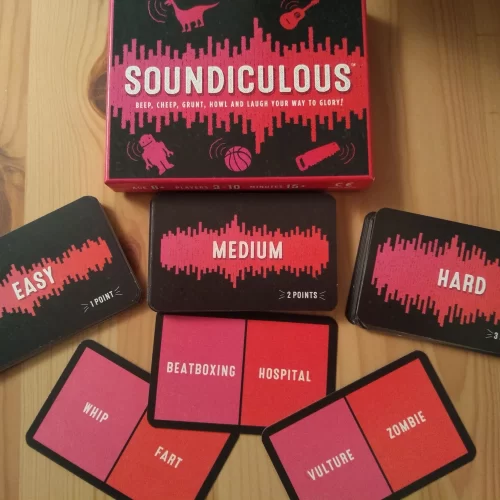
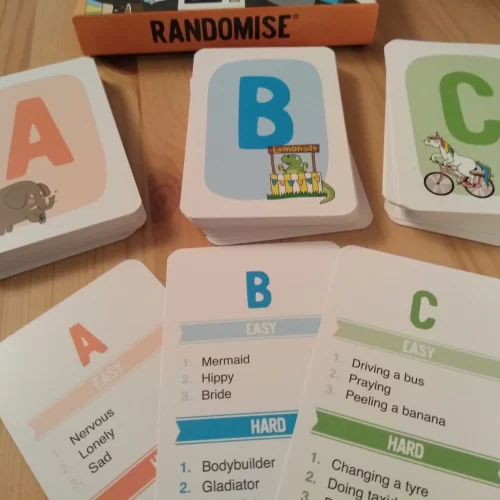
My wishlist
This seems like a good as place as any to let the big man know what I would like for Christmas this year. Considering I have been exceptionally well behaved this year I would very much like the following:
Splendor – I’m really enjoying Jaipur and if I remember correctly this is similar but plays 4 instead of 2. Nice and strategic with shiny gems!
Muse Card Game This sounds similar to Dixit and the art work looks absolutely beautiful (can you also send me some people who would play this with me as most of my family will hate it with a passion usually reserved for their disdain for Dixit) and Staccups because it looks like crazy fun and I can imagine the whole family playing this over Christmas.
If you’ve got loads of games or just don’t know where to start, why not buy a gift voucher for a games night. Instead of buying more stuff, why not buy an experience, some time together, memories. Book Cards or Die to run a games night for you – we read the rules and bring the games. All you have to do is get the gang together and tell us where and when! Prices start from £8.95 per person.
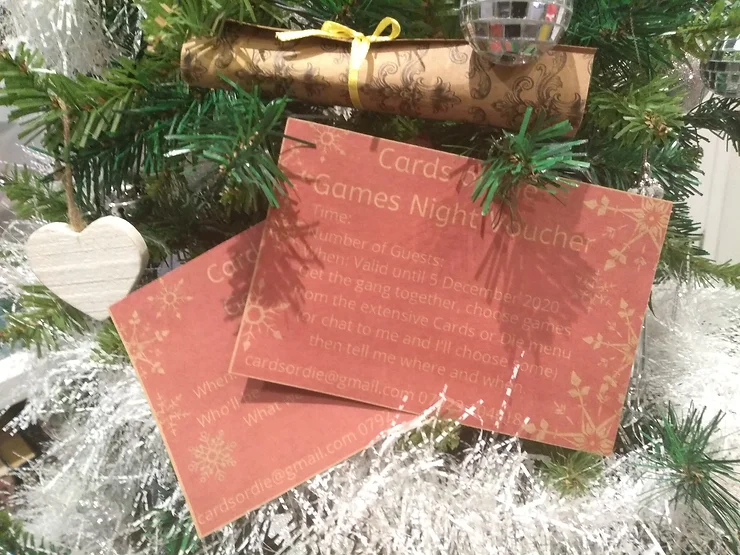
I hope this has provided you with some inspiration. And if you do fancy treating me to a festive cuppa or a slice of cake, here’s my Ko Fi link!
